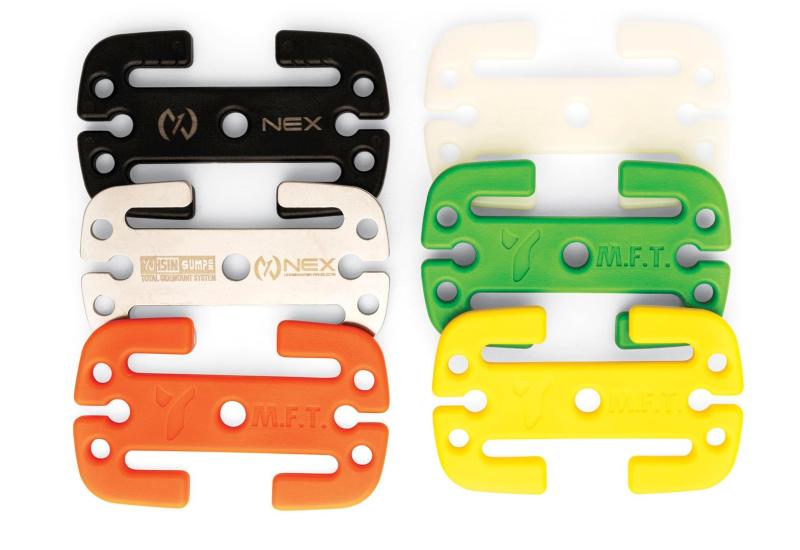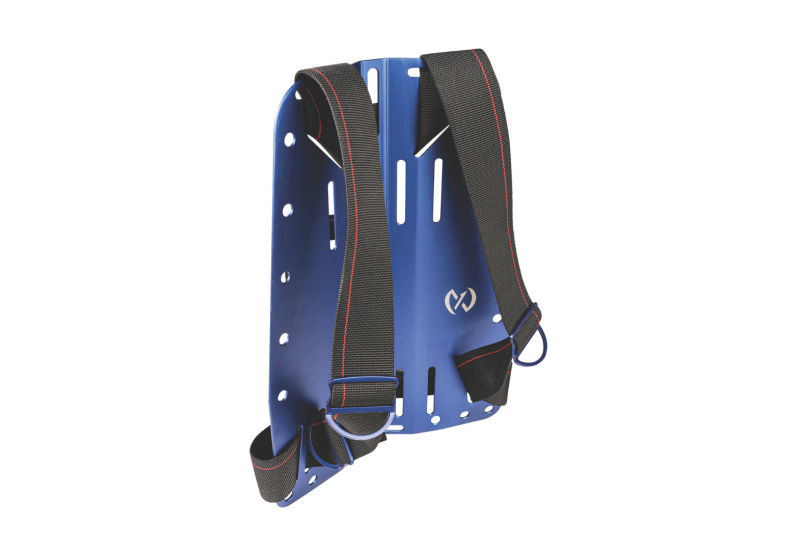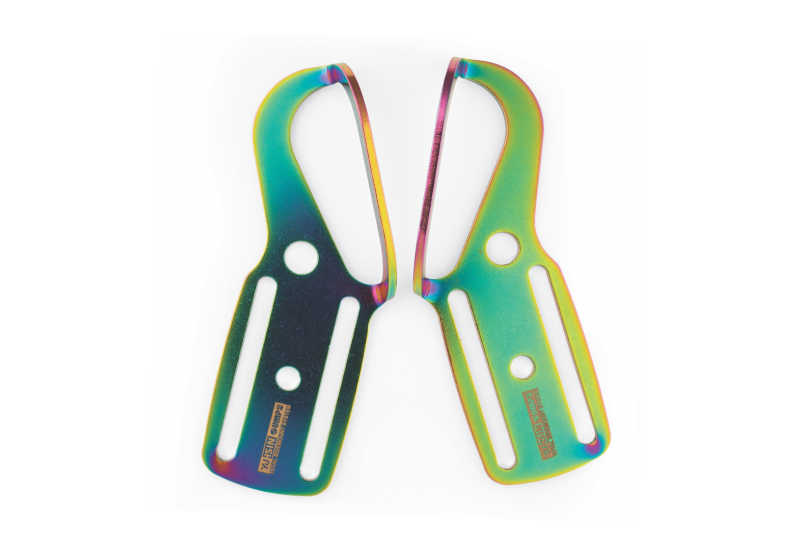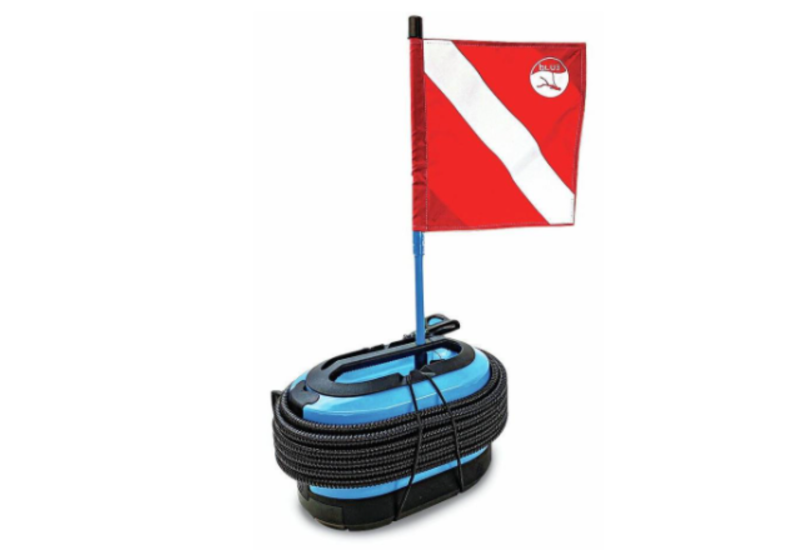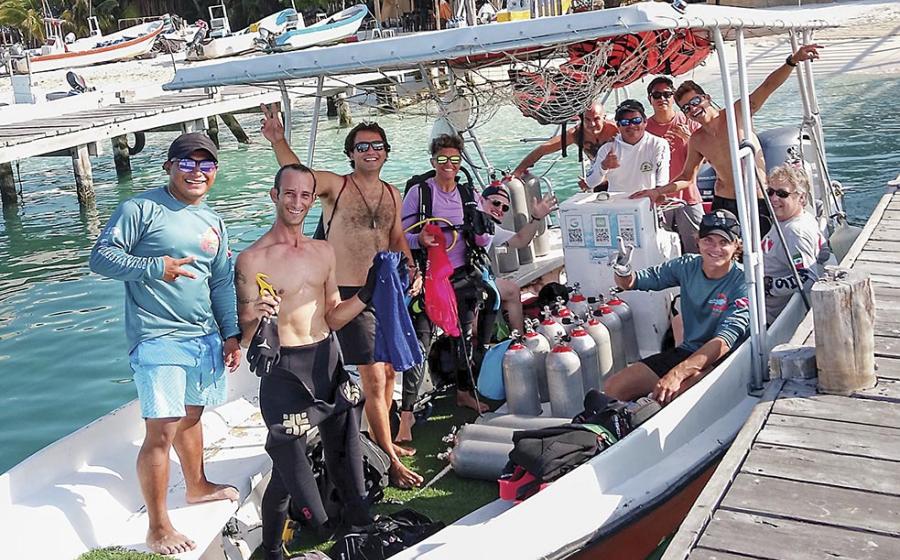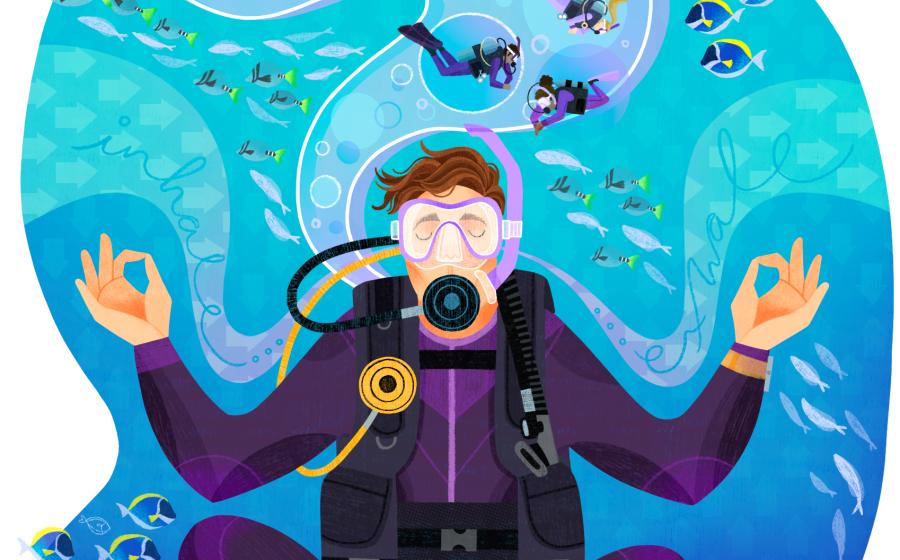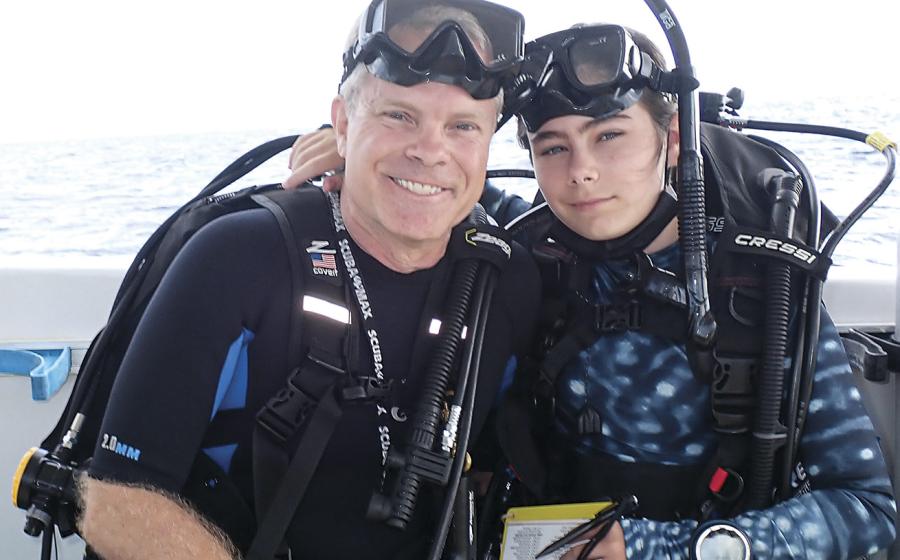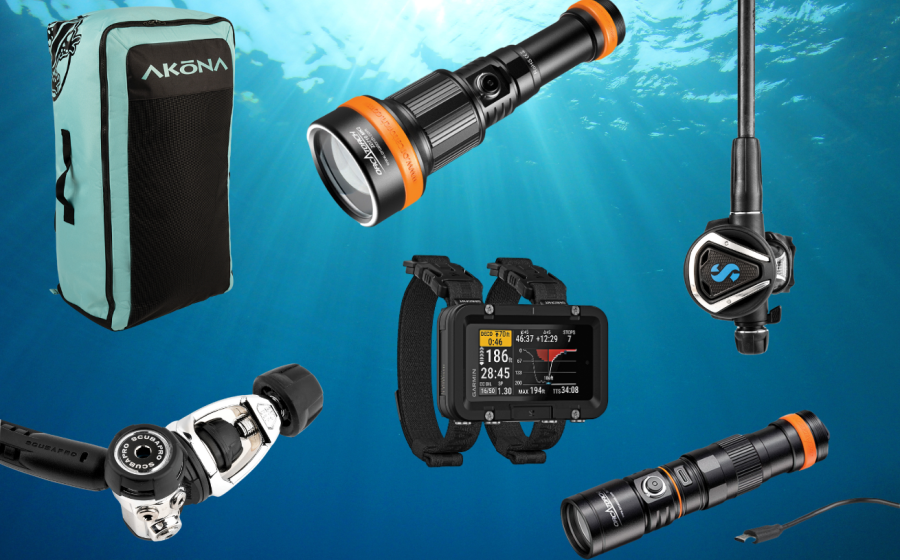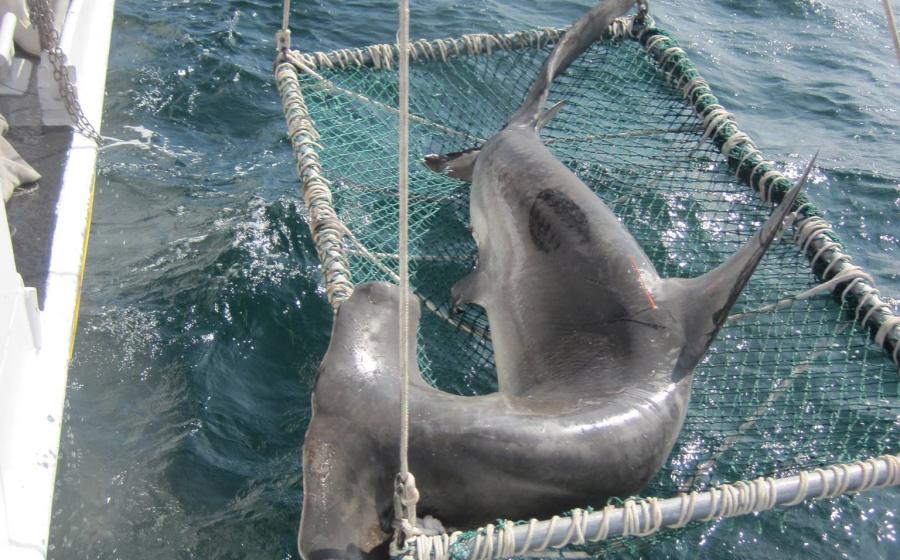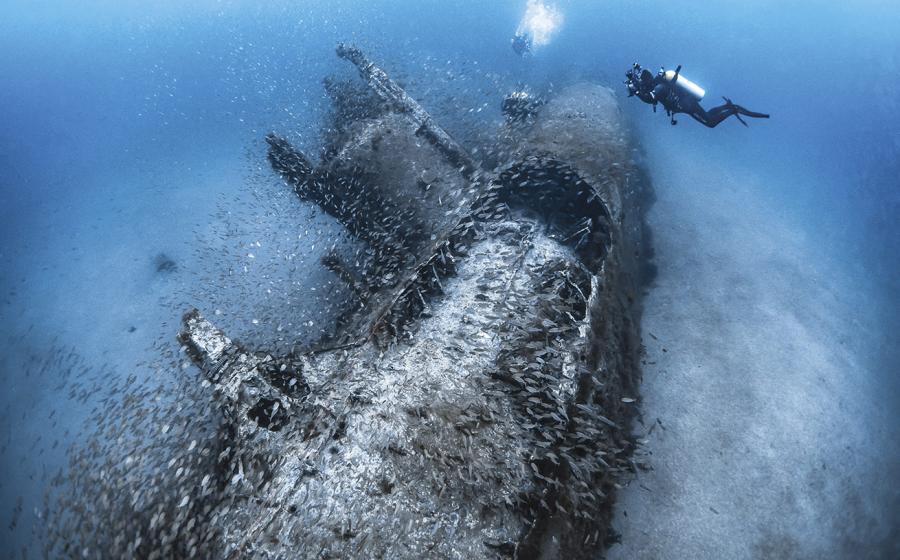10 Accessories Every Diver Needs
Photography by Joseph Byrd

Diving is a unique sport in that it requires life support equipment. That's why our ScubaLab team spends much of its time performing hard-core evaluations on regulators, BCs, computers and fins. You depend on your essential dive gear to keep you safe, and our job is to help you find the best option at the best cost. But the dive experience encompasses more than mere survival. Diving is a sport--it's supposed to be fun. So we went in search of the must-have accessories — toys, tools and topside clothing — that help you enjoy the overall dive experience. The following are the top 10 accessories we think every diver should have, and some specific examples of each that came through our evaluations with flying colors.
1. A Good Full-Sized Gear Bag
Every diver needs a bag to organize, transport and protect their gear. We recommend you do it right with dive-specific luggage that's not only custom-built to protect your gear but that can stand up to sun, saltwater and sumo-like baggage handlers. The trend in full-sized dive luggage is toward slightly smaller and decidedly lighter bags as airlines have gotten strict about luggage restrictions in recent years. Here are three new models that impressed us.
Akona

Akona: AKB156 Progression
AKB156 Progression Roller Bag
At 30 inches tall by 17 inches wide and 13 inches deep, the Progression is not so big that luggage handlers would rather kick it than lift it, but it will handle a full set of gear with ease. The main compartment is padded and offers great access with a three-sided zipper opening. Mesh fin sleeves with Velcro straps corral your fins, and internal compression straps keep big items like your BC and folded wetsuit in place. It comes with an Akona Pro Reg Bag you can either carry-on or slide into one of two custom-fit pouches on the front of the bag. The rugged 600 denier fabric with skid rails on the back and reinforced lifting handles can take plenty of abuse while the all-terrain wheels and two-position locking handle roll smoothly from baggage claim to boat dock.
www.akona.com
Scubapro

Scubapro: Dive'N Roll
Dive'N Roll
Measuring 28 inches tall, 18 inches wide and 17 inches deep, this big gear hauler has room for all your stuff and is made up of three distinct packing components. The main compartment is a roomy hard-shelled case fitted with a soft lid, a couple padded handles, in-line wheels and a retractable pull handle. Zipped onto the lid is a detachable soft travel bag with padded backpack straps, and then zipped onto it is a small detachable backpack. The hard-shelled case easily holds an entire complement of tropical dive gear. The travel bag holds a week's worth of knock-around clothes, and the backpack is perfect as a carry-on. Embarking on your dive adventure, you could wheel the complete bag to the ticket counter, check the hard case, carry the travel bag/backpack onto the plane, stow the travel bag in the overhead and keep the backpack in the seat with you.
www.scubapro.com
Akona

Akona: AKB188 < 10 pound bag
AKB188 < 10 pound bag
When it comes to traveling, lighter luggage is always better and that's exactly what Akona had in mind with its <10 Pound Roller Bag. The bag weighs just over nine pounds empty, which is about three pounds lighter than your average soft dive bag, and it offers lots of no-frills packing space. It's basically one very large main compartment with internal and external straps to keep your load from shifting. It will easily hold a full complement of travel gear along with that extra wetsuit or T-shirt you stuff in at the last minute. The three-sided main compartment lid makes loading and unloading a cinch, and the zipper overflap provides protection from the rigors of baggage handlers and carousels. A padded lift handle makes it easier to lift the bag onto inspection tables, and thanks to a nice locking pull handle with solid double rods, it wheels like a champ.
www.akona.com
2. A Good Dry Bag
On any dive boat smaller than your typical aircraft carrier, so-called "dry areas" are few and far between. How do you make certain your wallet, cell phone, clothes and towel stay bone-dry while you're out having wet fun? Your best bet is an airtight dry bag that will seal out water and moisture even if dropped overboard. There are many options on the market, and just about all of them will do the trick, but these particular bags caught our attention for their features and durability.
Watershed

Watershed: ZipDry Bag
ZipDry Bag
Water is relentless in its quest to infiltrate your dry items, which is why we like the take-no-prisoners mentality behind this bag's unique ZipDry seal closure and bulletproof construction. The first line of defense is a double-sealed, zip-lock-type closure that can then be folded over in traditional dry bag style and clipped down for added security. It's also built like a Navy SEAL raft with UV-resistant polyurethane laminated nylon, mil-spec stitching, RF-welded seams and expedition grade hardware. Bonus: Ours came with an optional padded laptop liner for those who do onboard photo editing.
www.drybags.com.
Akona

Akona: AKB 754 Dry Duffle
April 2008: 10 Accessories Every Diver Needs: AKB 754 Dry Duffle
AKB 754 Dry Duffle
This is a light yet durable dry duffel. Just roll the top three times, snap the clips and--voila!--the bag is effectively sealed for any condition this side of a tropical storm. The 600 denier polyester double-coated polyurethane is puncture and tear resistant and seams are made waterproof with thermal fabric welds. Compression straps and a buckle down top keep things sealed up tight while double handles make for an easy carry. This bag will fit all your clothes and a towel with room to spare.
www.akona.com.
3. Some Good Dive Lights
It's another world on the reef at night, and your passport to diving after dark is a trusty dive light. You need a good primary for night diving, of course, but a good pocket light is useful both as a backup light and for peering into crevices by day. Finally, we also recommend a good headlamp for hands-free illumination while you're gearing up.
UK

UK: C4 eLED
April 2008: 10 Accessories Every Diver Needs: C4 eLED
C4 eLED
The C4 eLED uses two LED bulbs to produce a tightly focused, high-intensity beam that will cut through the darkest conditions. Burn time on full power will run eight to nine hours on a set of four alkaline C-cell batteries.
www.uwkinetics.com
UK

UK: Vizion Headlamp
April 2008: 10 Accessories Every Diver Needs: Vizion Headlamp
Vizion Headlamp
The new Vizion headlamp leaves your hands free to search through your gear bag and set up cameras, all without wasting the batteries on your primary dive light. It's "weather-proof," depth tested down to 33 feet, and it provides three beam patterns: spot, diffused, and navigation red. It also has a high and low power setting providing up to 150 hours of burn time on three alkaline AAA batteries.
www.uwkinetics.com
Princeton Tec

Princeton Tec: Impact XL LED
April 2008: 10 Accessories Every Diver Needs: Impact XL LED
Impact XL LED
The Impact XL could easily stand for Xtra-Long burn time. You get 50 hours of illumination on four AA batteries and this is the perfect pocket light to use as a backup nightlight or daytime shelf seeker.
www.princetontec.com
4. A Compass
If you really want to impress the other divers on the boat, don't stand around telling harrowing stories about getting lost--just come back to the boat without having to surface to find it. No compass on your gear console? Then you need.
Suunto

Suunto: SK-7 Compass & Retractor
April 2008: 10 Accessories Every Diver Needs: SK-7 Compass & Retractor
SK-7 Compass & Retractor
A big reason we recommend this compass is the optional retractor and quick-release snap. Attach it to a shoulder D-ring and it's out of your way until needed. When it's time to navigate you'll appreciate the huge side-reading window, phosphorescent compass card and a bezel that ratchets every five degrees for confident course setting. Bonus: The compass card has great action and responds quickly without hanging up, even when tilted 30 degrees.
www.aqualung.com
5. A Cozy Dive Parka
Standing on a breezy deck in a dripping wetsuit is sure to drain heat and energy from your body. Evaporative cooling causes your core temperature to drop after the dive. Don't let cold cause you to skip the last dive, especially when you can stay ready for action with a good dive parka. Our long-standing favorite:
Divegear

Divegear: Boat Coat
April 2008: 10 Accessories Every Diver Needs: Boat Coat
Boat Coat
Putting on the Divegear Boat Coat after a cold day of diving is like climbing into your favorite sleeping bag. Its soft outer shell repels wind and spray while the Micro Fleece lining warms your bones, even if you're still a bit damp. It has a large two-way zipper backed with a wind-blocking flap and big pull-tabs for easy use with numb fingers. Adjustable cuffs cut the wind chill, and they slip nicely into fleece-lined pockets for extra warmth. When conditions are brutal, pull on the insulated hood, tighten down the shock cord face-cinch and laugh at the cold all the way back to shore.
www.divegearusa.com
6. Surface Signaling Devices
Take it from us: Surfacing down-current a long, long way from the dive boat is one lonely feeling. You can't always prevent it, but you can prepare for it with a good set of surface signaling gear. We recommend a tall, inflatable signal tube, an ear-splitting whistle and a signaling mirror as standard equipment on every dive.
DAN

DAN: Surface Signal Kit
April 2008: 10 Accessories Every Diver Needs: Surface Signal Kit
Surface Signal Kit
This kit has it all: a six-foot tube with reflective ink on one side, a Wind Storm whistle audible to about one-half mile, a signal mirror, and a 12-hour light stick that fits into a clear sleeve at the top of the tube. The tube can be filled from a regulator, orally or from your inflator hose, and it clips to a lower D-ring for vertical deployment. The whole kit rolls up and a neat mesh pocket holds all the accessories.
www. diversalertnetwork.org
Aqua Lung

Aqua Lung: SOS
SOS
This Surface Observation Signal was born out of the real-life experiences of ocean photographer Stephen Frink. It's the original "Hands Free" signal tube and also one of the easiest to pack and deploy. The SOS attaches to the BC's rear pull-dump fitting and secures with an elastic strap. To deploy, just inflate your BC and pull the release strap. Air transfers from the BC into the tube until full. Now your hands are free to blow your whistle, use a signal mirror or just hold onto your cameras.www.aqualung.com
7. Spring Straps
Spring straps are so darn convenient that we think every diver should have a set. They pull on over your heel easily, are self-adjusting, and will last for years. While more and more new fins are coming standard with spring straps, these after-market options allow you to upgrade your current fins.
Tusa

Tusa: TA-80 Spring Straps
TA-80 Spring Straps
Tusa's new spring straps come with the hardware and even the tools to retrofit almost any post-style fin. The whole process takes about five minutes. A rubber heel pad and large finger loop make donning and doffing a breeze.www.tusa.com
Atomic Aquatics
|

Atomic Aquatics: Spring straps
Spring straps
Designed to fit Atomic fins exclusively, these spring straps use a variable pitch coil for easier stretch and greater strength. These spring straps also come with a unique quick-release buckle system permitting simple, one-handed removal or attachment.www.atomicaquatics.com
OMS

OMS: FS series spring straps
FS series spring straps
Die-hard Jet Fin and Rocket Fin users rejoice--this spring strap system is specifically designed to retrofit older-style fins that use metal buckles. The straps are available in four sizes (S, M, L, XL) and have a comfy rubber heel pad. They are also available with plastic buckles to fit post-style fins.www.omsdive.com
8. A Good Parts & Tool Kit
Minor gear failures like a blown O-ring or leaky fitting won't keep you from diving if you have the right backup parts and tools to engage in some basic field repair.
Innovative Scuba Concepts

Innovative Scuba Concepts: Diver Tool and Repair Kit
Diver Tool and Repair Kit
If you're the one that everybody turns to when something breaks, then you better have this tool kit. This deluxe 34-piece kit has everything you need, including open-ended wrenches that fit common hoses, an eight-piece hex wrench set to tighten plugs, plus zip ties, silicone and spare O-rings. It's organized in a nice zippered case.
Contact your local dive store.
9. Clips & Retainers
Clips and retainers are the must-have accessory for all your other accessories, helping to control and streamline your gear. Two of our favorites:
Mares

Mares: Lanyard Spiral with Ring
Lanyard Spiral with Ring
This lanyard with spiral cord is a great way to keep a dive light close at hand. The light can be connected with either a split ring or a nylon cord at one end. The other end is fitted with a clip for easy connection to a D-ring. A quick-release buckle keeps the hang length to about six inches. For greater extension just pinch the clip and stretch out the coil for excellent range of motion. The best part is that you won't lose your light if dropped.www.mares.com
Princeton Tec

Princeton Tec: Mini Retractor
Mini Retractor
The Mini Retractor is great for handling smaller gear like slates, backup lights and consoles. Things that usually get stuffed into pockets are easier to access when clipped off instead. The Mini Retractor extends 20 inches and has a quick-release clip for convenience.www.princetontec.com
10. A Trusty Dive Knife
No piece of dive gear has improved more over the decades than the dive knife. The latest designs make use of better materials that resist corrosion and hold a sharp edge longer than ever before.
Atomic Aquatics

Atomic Aquatics: Ti6 Titanium
Ti6 Titanium
The four-inch Titanium blade has a very sharp serrated edge on top for quick rope ripping and a smooth blade on the bottom with a line-cutting notch. The handle has molded finger grooves for a secure grip and a lanyard hole is provided for cold-water divers whose dexterity is minimal due to thick mitts. Bonus: The titanium end cap can be removed to disassemble the handle for cleaning, though corrosion is not an issue. The knife can be removed and replaced easily from the locking sheath with one hand. The Ti6 knife has a traditional look with high-tech improvements. Available with a blunt or pointed tip.www.atomicaquatics.com
Spyderco

Spyderco: Atlantic Salt (yellow) and Pacific Salt (black)
Atlantic Salt and Pacific Salt
Also featuring H1 stainless steel, these folding knives fit nicely in small pockets, open easily with one hand and are available with smooth or serrated edges.www.spyderco.com
Spyderco

Spyderco: Caspian Salt
Caspian Salt
The Caspian Salt is a small knife with some big teeth and a seriously sharp edge. The blade is made of special H1 stainless steel that uses nitrogen instead of carbon in its matrix, thus producing a metal that's hard enough to hold a serious edge but still resists corrosion with the best of them. Bonus: A large finger hole makes it one of the most secure grips we've seen.www.spyderco.com
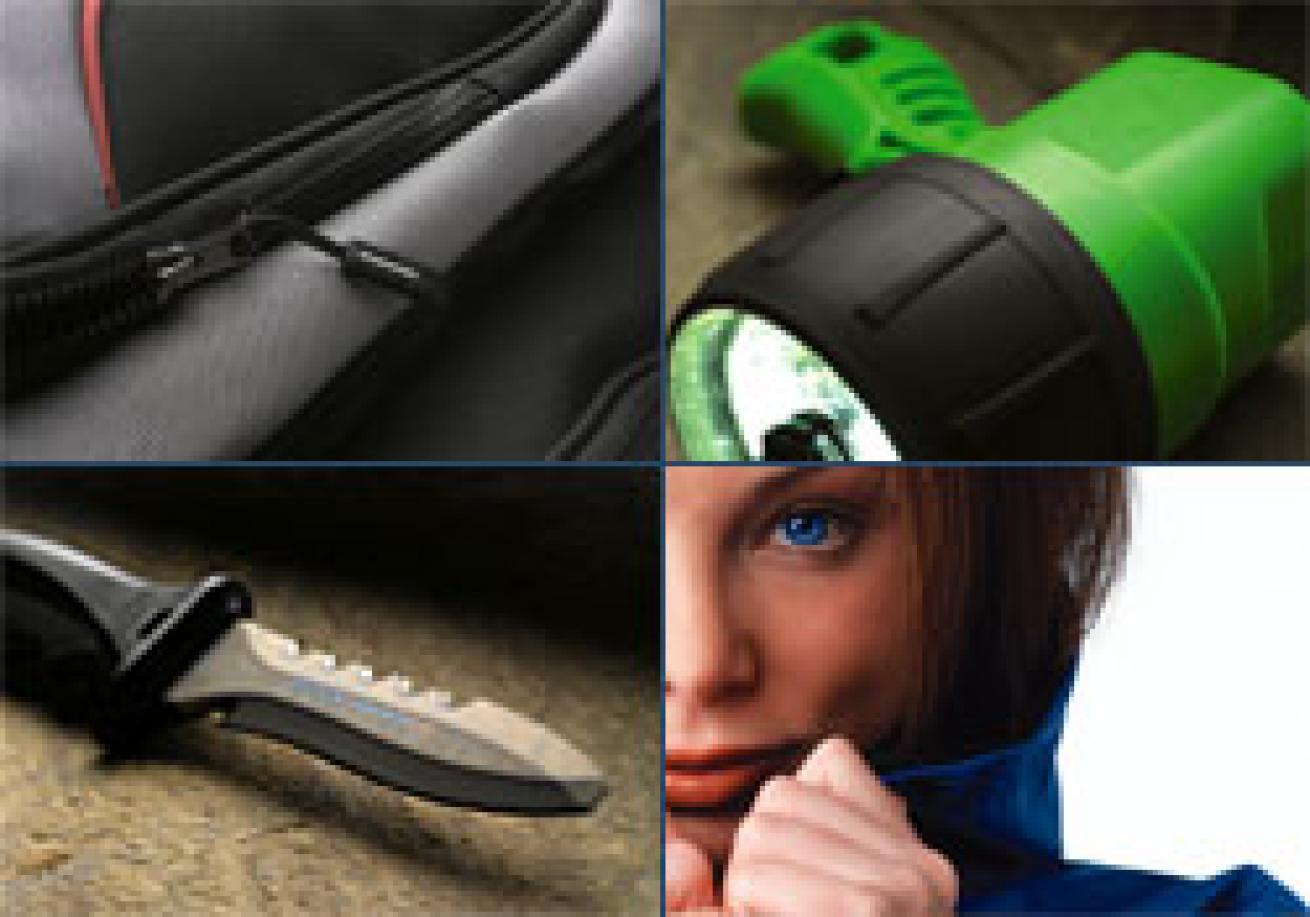
Joseph Byrd10 Accessories Every Diver Needs
Diving is a unique sport in that it requires life support equipment. That's why our ScubaLab team spends much of its time performing hard-core evaluations on regulators, BCs, computers and fins. You depend on your essential dive gear to keep you safe, and our job is to help you find the best option at the best cost. But the dive experience encompasses more than mere survival. Diving is a sport--it's supposed to be fun. So we went in search of the must-have accessories — toys, tools and topside clothing — that help you enjoy the overall dive experience. The following are the top 10 accessories we think every diver should have, and some specific examples of each that came through our evaluations with flying colors.
1. A Good Full-Sized Gear Bag
Every diver needs a bag to organize, transport and protect their gear. We recommend you do it right with dive-specific luggage that's not only custom-built to protect your gear but that can stand up to sun, saltwater and sumo-like baggage handlers. The trend in full-sized dive luggage is toward slightly smaller and decidedly lighter bags as airlines have gotten strict about luggage restrictions in recent years. Here are three new models that impressed us.
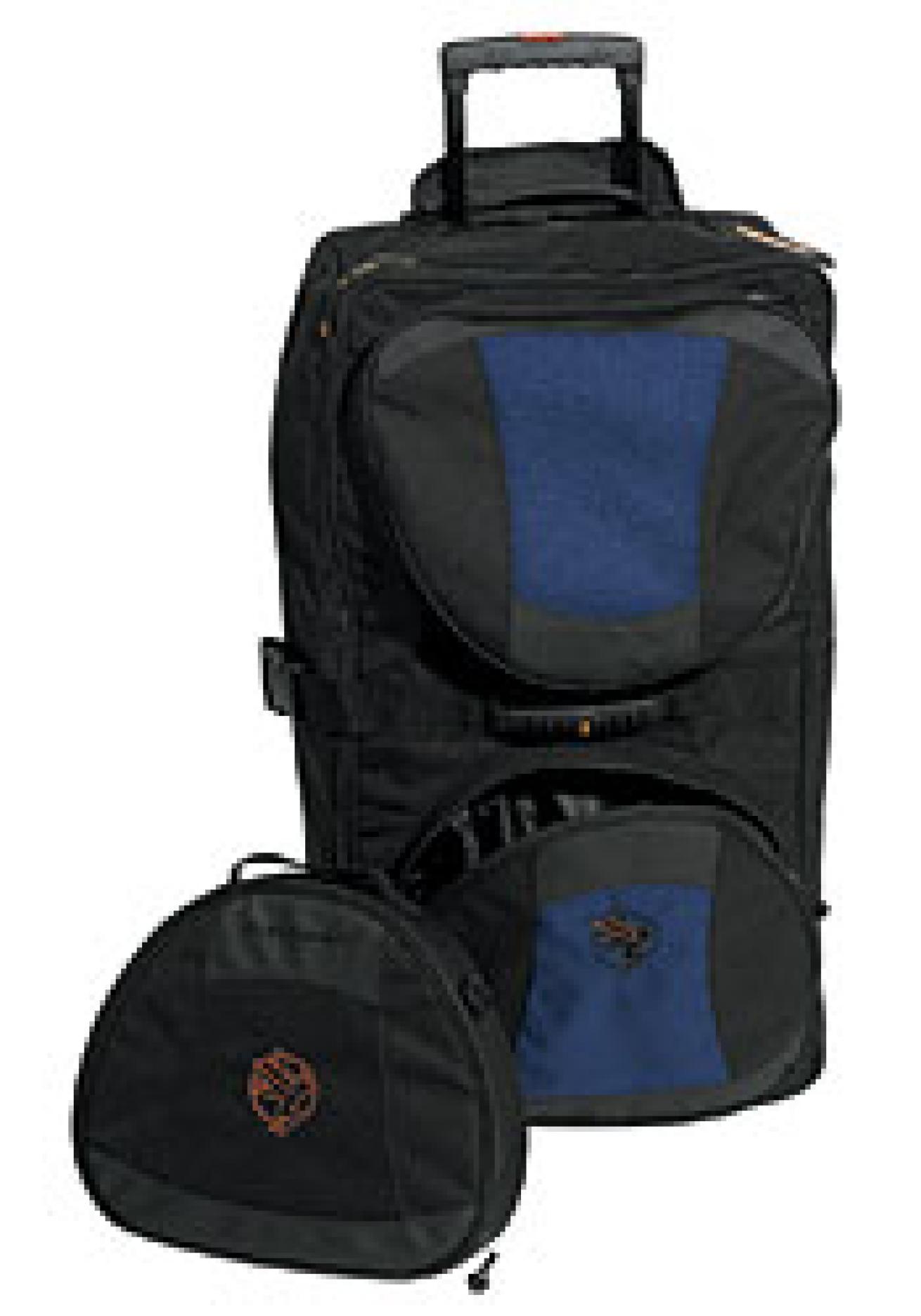
Joseph ByrdAkona: AKB156 Progression
AKB156 Progression Roller Bag
At 30 inches tall by 17 inches wide and 13 inches deep, the Progression is not so big that luggage handlers would rather kick it than lift it, but it will handle a full set of gear with ease. The main compartment is padded and offers great access with a three-sided zipper opening. Mesh fin sleeves with Velcro straps corral your fins, and internal compression straps keep big items like your BC and folded wetsuit in place. It comes with an Akona Pro Reg Bag you can either carry-on or slide into one of two custom-fit pouches on the front of the bag. The rugged 600 denier fabric with skid rails on the back and reinforced lifting handles can take plenty of abuse while the all-terrain wheels and two-position locking handle roll smoothly from baggage claim to boat dock.
www.akona.com
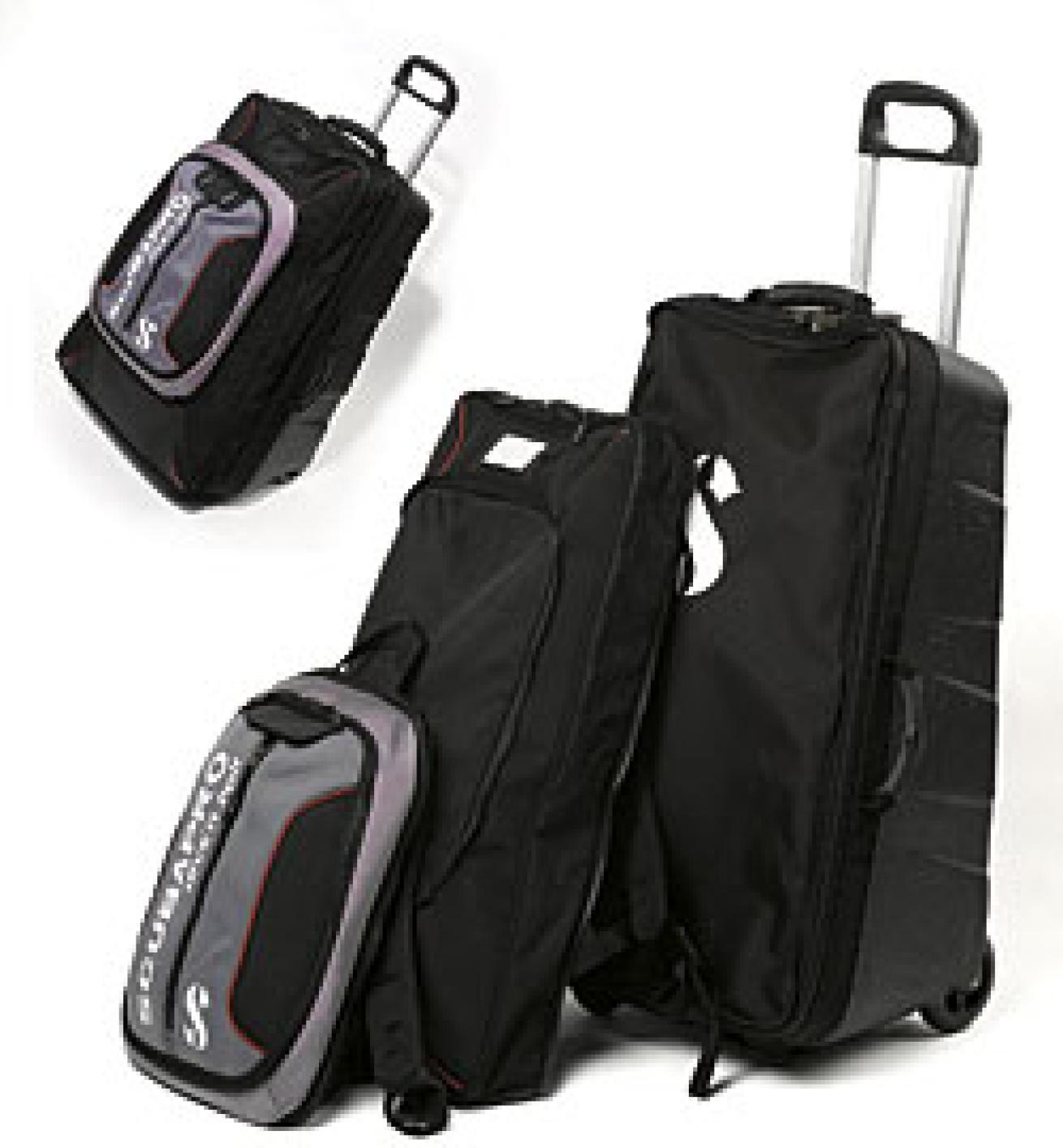
Joseph ByrdScubapro: Dive'N Roll
Dive'N Roll
Measuring 28 inches tall, 18 inches wide and 17 inches deep, this big gear hauler has room for all your stuff and is made up of three distinct packing components. The main compartment is a roomy hard-shelled case fitted with a soft lid, a couple padded handles, in-line wheels and a retractable pull handle. Zipped onto the lid is a detachable soft travel bag with padded backpack straps, and then zipped onto it is a small detachable backpack. The hard-shelled case easily holds an entire complement of tropical dive gear. The travel bag holds a week's worth of knock-around clothes, and the backpack is perfect as a carry-on. Embarking on your dive adventure, you could wheel the complete bag to the ticket counter, check the hard case, carry the travel bag/backpack onto the plane, stow the travel bag in the overhead and keep the backpack in the seat with you.
www.scubapro.com
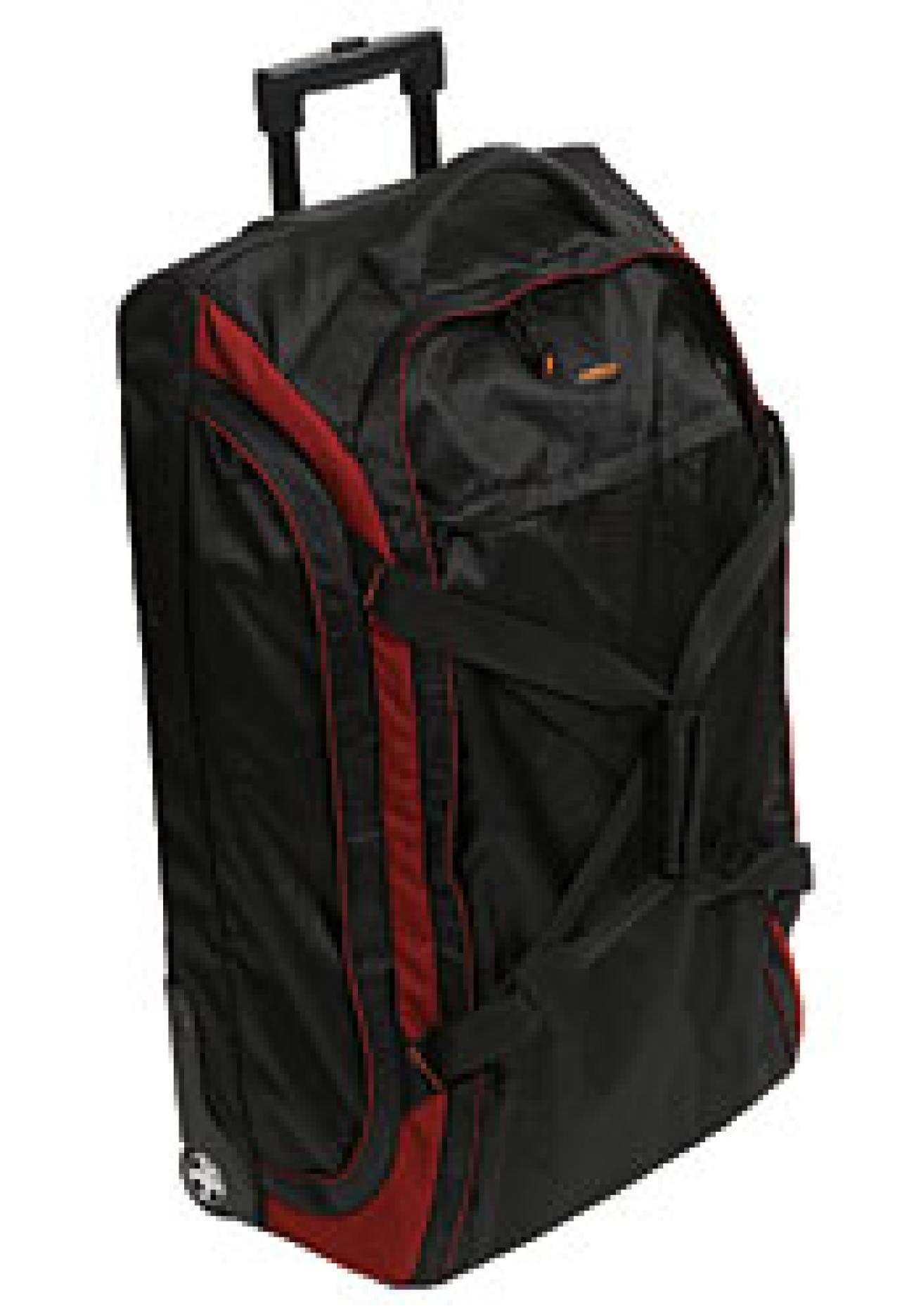
Joseph ByrdAkona: AKB188 < 10 pound bag
AKB188 < 10 pound bag
When it comes to traveling, lighter luggage is always better and that's exactly what Akona had in mind with its <10 Pound Roller Bag. The bag weighs just over nine pounds empty, which is about three pounds lighter than your average soft dive bag, and it offers lots of no-frills packing space. It's basically one very large main compartment with internal and external straps to keep your load from shifting. It will easily hold a full complement of travel gear along with that extra wetsuit or T-shirt you stuff in at the last minute. The three-sided main compartment lid makes loading and unloading a cinch, and the zipper overflap provides protection from the rigors of baggage handlers and carousels. A padded lift handle makes it easier to lift the bag onto inspection tables, and thanks to a nice locking pull handle with solid double rods, it wheels like a champ.
www.akona.com
2. A Good Dry Bag
On any dive boat smaller than your typical aircraft carrier, so-called "dry areas" are few and far between. How do you make certain your wallet, cell phone, clothes and towel stay bone-dry while you're out having wet fun? Your best bet is an airtight dry bag that will seal out water and moisture even if dropped overboard. There are many options on the market, and just about all of them will do the trick, but these particular bags caught our attention for their features and durability.
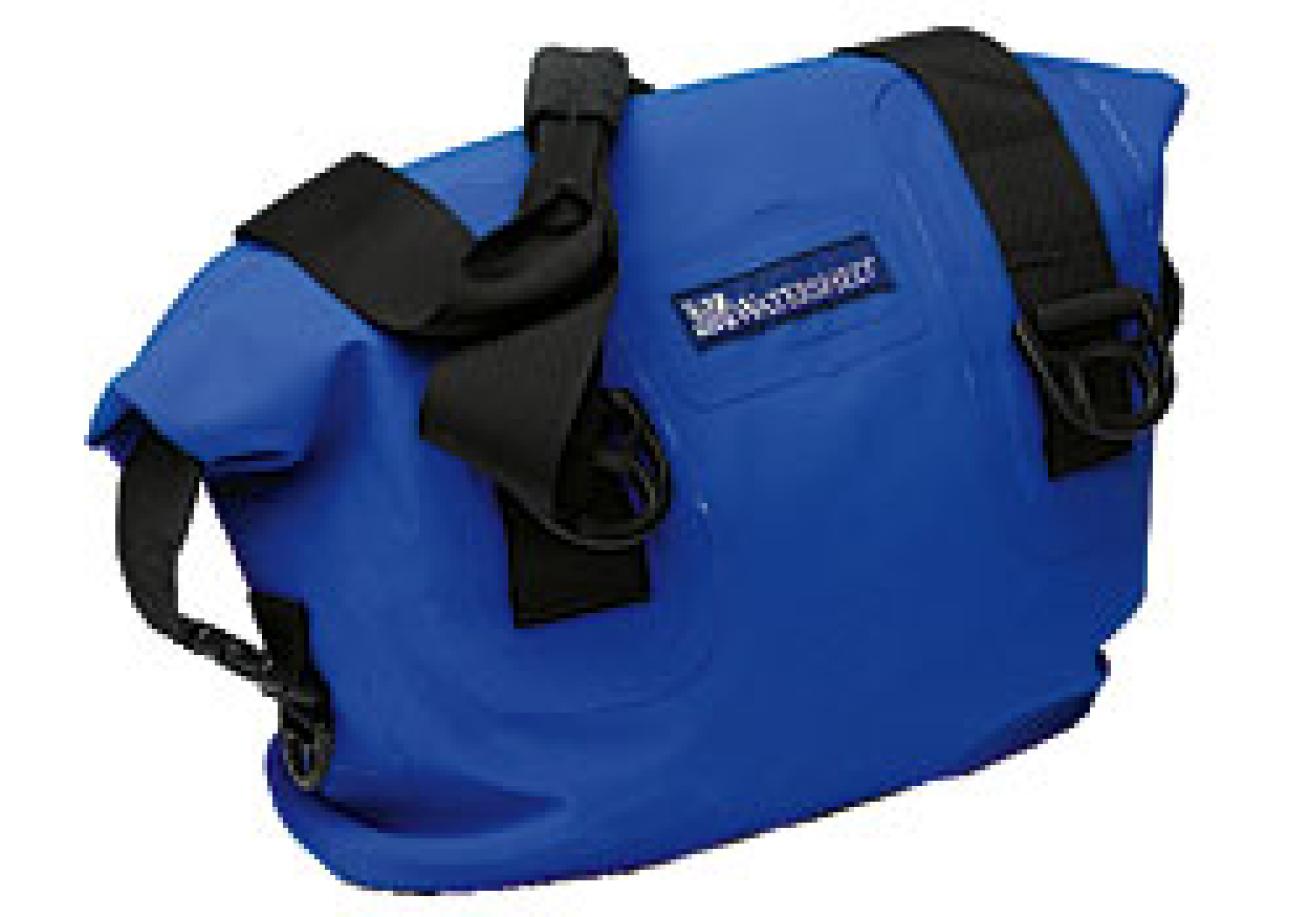
Joseph ByrdWatershed: ZipDry Bag
ZipDry Bag
Water is relentless in its quest to infiltrate your dry items, which is why we like the take-no-prisoners mentality behind this bag's unique ZipDry seal closure and bulletproof construction. The first line of defense is a double-sealed, zip-lock-type closure that can then be folded over in traditional dry bag style and clipped down for added security. It's also built like a Navy SEAL raft with UV-resistant polyurethane laminated nylon, mil-spec stitching, RF-welded seams and expedition grade hardware. Bonus: Ours came with an optional padded laptop liner for those who do onboard photo editing.
www.drybags.com.
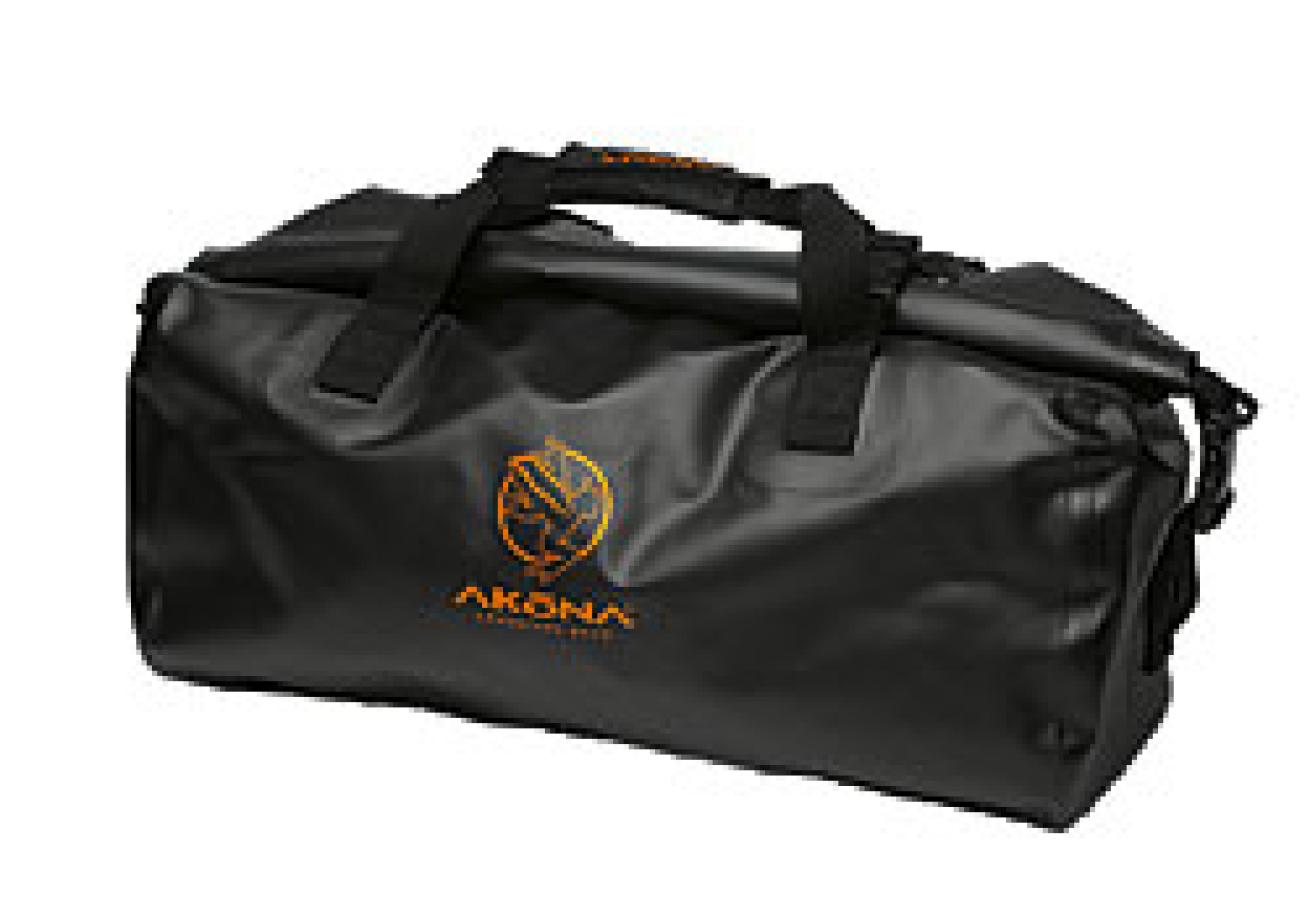
Joseph ByrdApril 2008: 10 Accessories Every Diver Needs: AKB 754 Dry Duffle
AKB 754 Dry Duffle
This is a light yet durable dry duffel. Just roll the top three times, snap the clips and--voila!--the bag is effectively sealed for any condition this side of a tropical storm. The 600 denier polyester double-coated polyurethane is puncture and tear resistant and seams are made waterproof with thermal fabric welds. Compression straps and a buckle down top keep things sealed up tight while double handles make for an easy carry. This bag will fit all your clothes and a towel with room to spare.
www.akona.com.
3. Some Good Dive Lights
It's another world on the reef at night, and your passport to diving after dark is a trusty dive light. You need a good primary for night diving, of course, but a good pocket light is useful both as a backup light and for peering into crevices by day. Finally, we also recommend a good headlamp for hands-free illumination while you're gearing up.
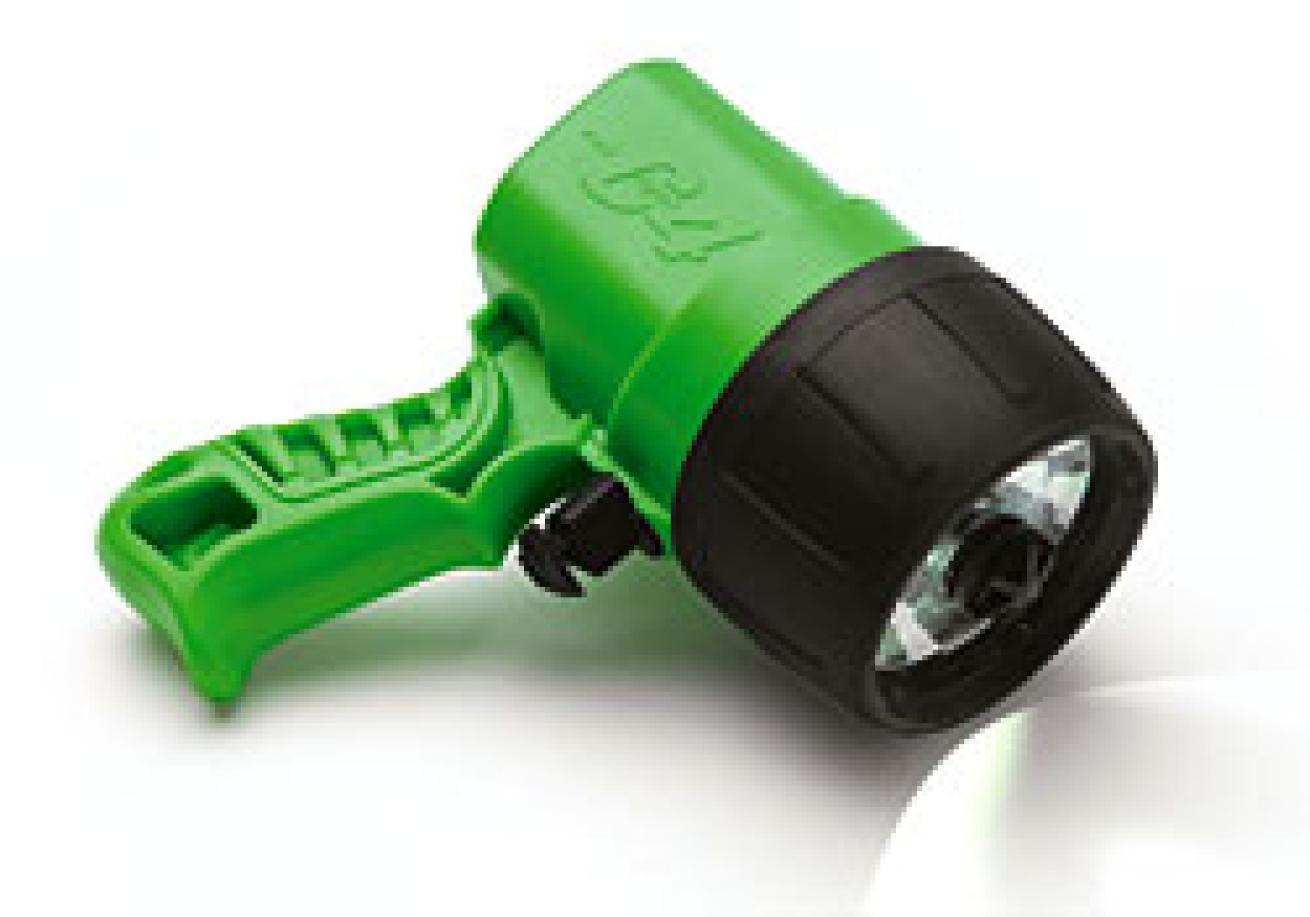
Joseph ByrdUK: C4 eLED
C4 eLED
The C4 eLED uses two LED bulbs to produce a tightly focused, high-intensity beam that will cut through the darkest conditions. Burn time on full power will run eight to nine hours on a set of four alkaline C-cell batteries.
www.uwkinetics.com
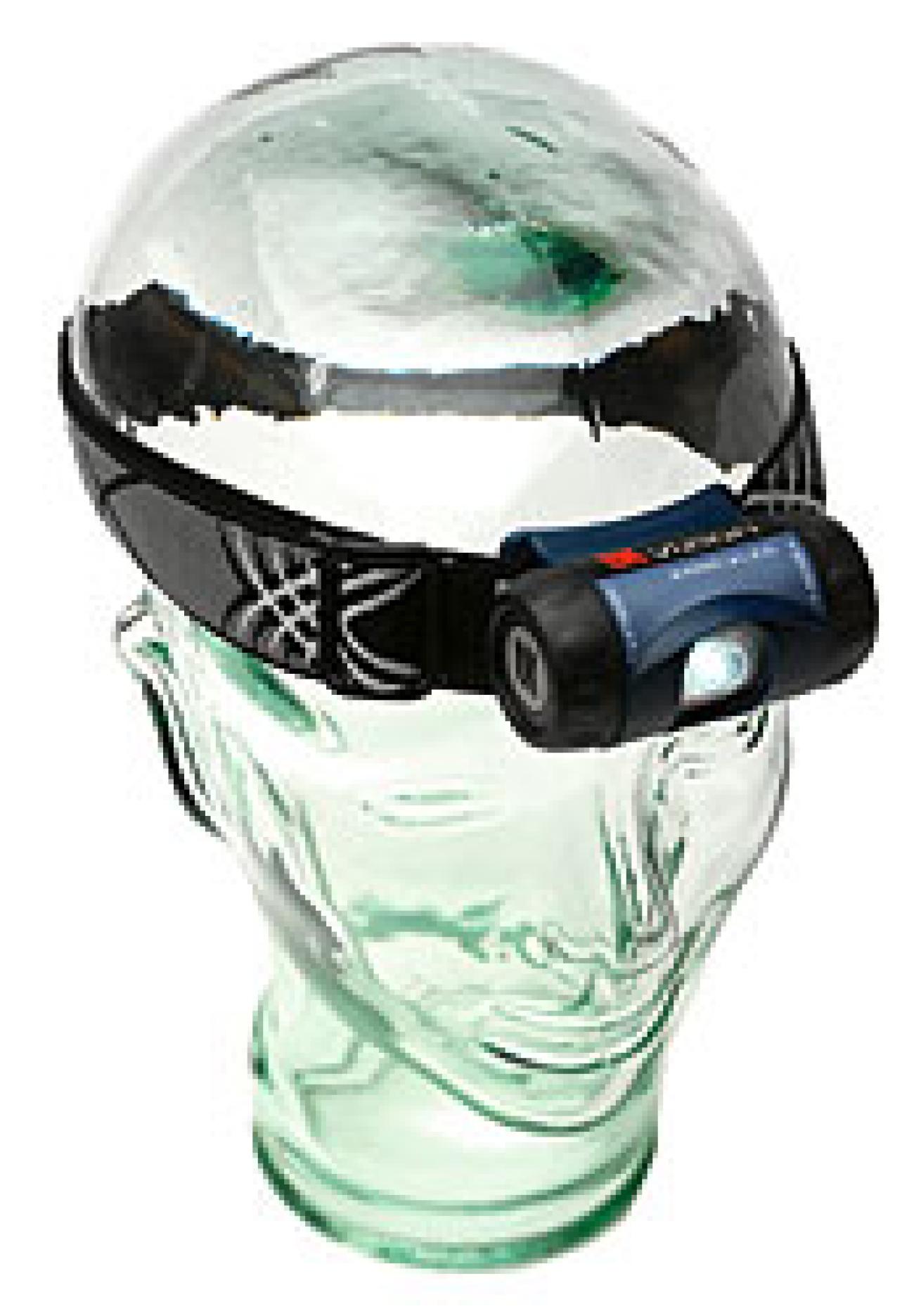
Joseph ByrdApril 2008: 10 Accessories Every Diver Needs: Vizion Headlamp
Vizion Headlamp
The new Vizion headlamp leaves your hands free to search through your gear bag and set up cameras, all without wasting the batteries on your primary dive light. It's "weather-proof," depth tested down to 33 feet, and it provides three beam patterns: spot, diffused, and navigation red. It also has a high and low power setting providing up to 150 hours of burn time on three alkaline AAA batteries.
www.uwkinetics.com
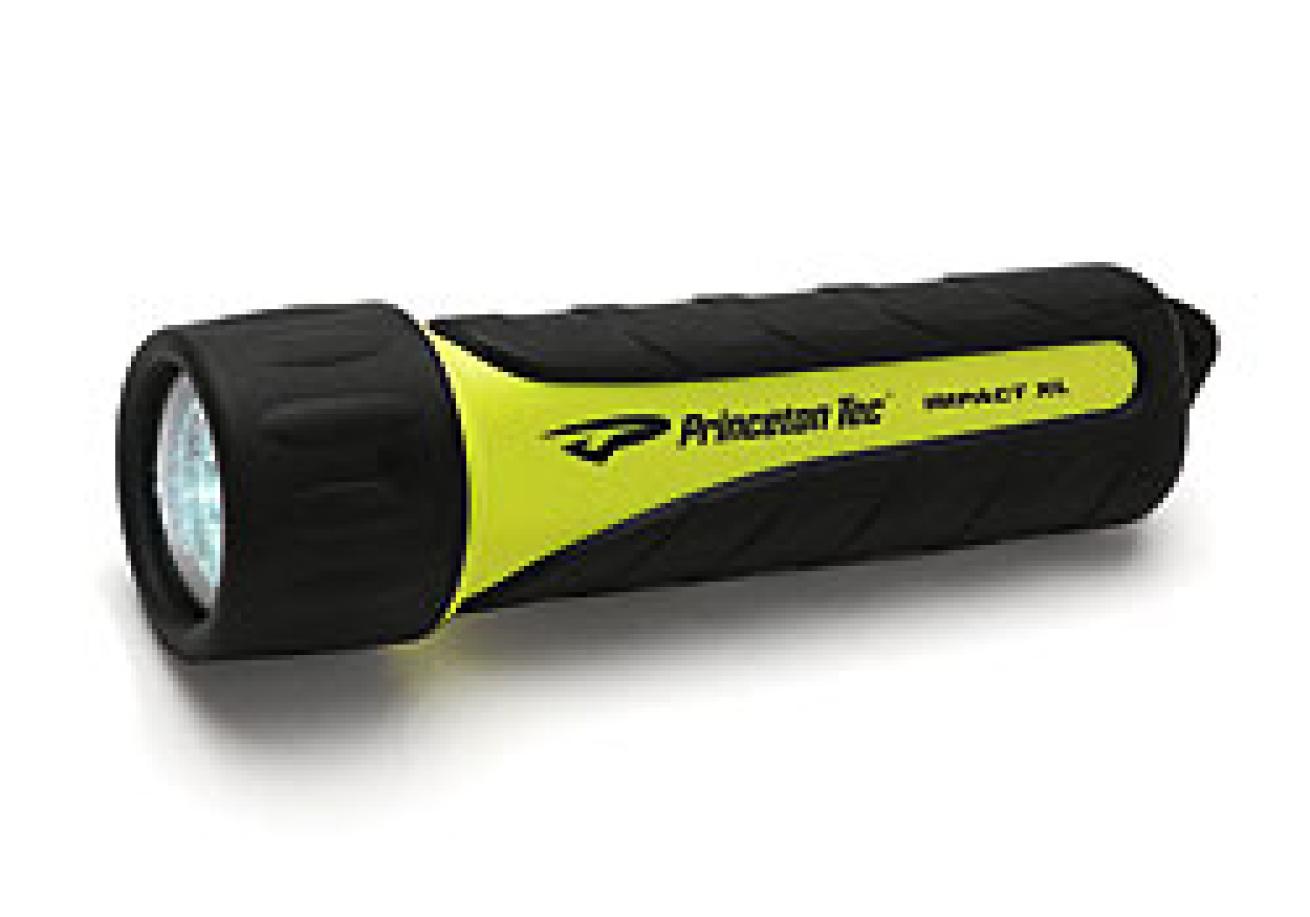
Joseph ByrdApril 2008: 10 Accessories Every Diver Needs: Impact XL LED
Impact XL LED
The Impact XL could easily stand for Xtra-Long burn time. You get 50 hours of illumination on four AA batteries and this is the perfect pocket light to use as a backup nightlight or daytime shelf seeker.
www.princetontec.com
4. A Compass
If you really want to impress the other divers on the boat, don't stand around telling harrowing stories about getting lost--just come back to the boat without having to surface to find it. No compass on your gear console? Then you need.
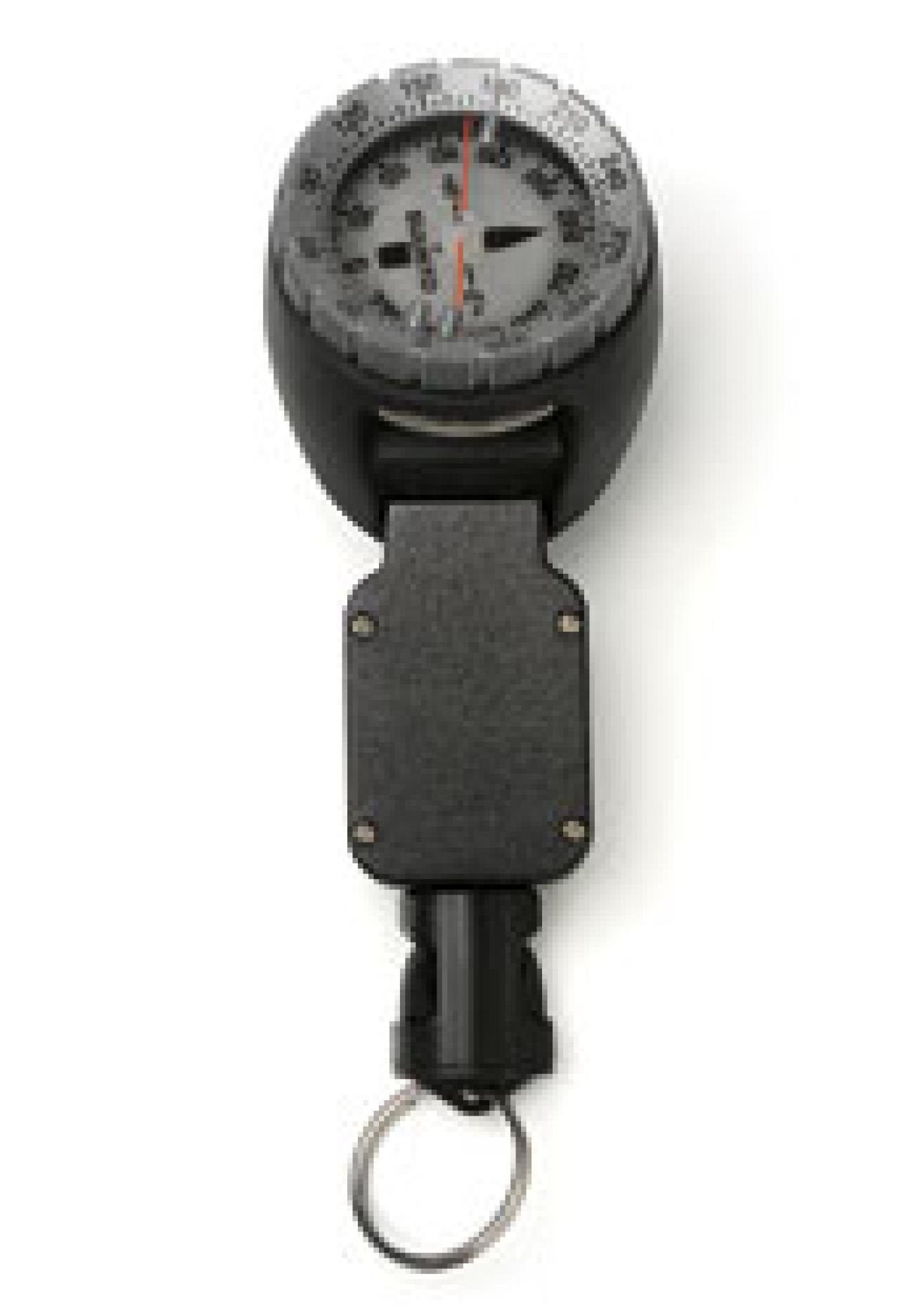
Joseph ByrdApril 2008: 10 Accessories Every Diver Needs: SK-7 Compass & Retractor
SK-7 Compass & Retractor
A big reason we recommend this compass is the optional retractor and quick-release snap. Attach it to a shoulder D-ring and it's out of your way until needed. When it's time to navigate you'll appreciate the huge side-reading window, phosphorescent compass card and a bezel that ratchets every five degrees for confident course setting. Bonus: The compass card has great action and responds quickly without hanging up, even when tilted 30 degrees.
www.aqualung.com
5. A Cozy Dive Parka
Standing on a breezy deck in a dripping wetsuit is sure to drain heat and energy from your body. Evaporative cooling causes your core temperature to drop after the dive. Don't let cold cause you to skip the last dive, especially when you can stay ready for action with a good dive parka. Our long-standing favorite:

Joseph ByrdApril 2008: 10 Accessories Every Diver Needs: Boat Coat
Boat Coat
Putting on the Divegear Boat Coat after a cold day of diving is like climbing into your favorite sleeping bag. Its soft outer shell repels wind and spray while the Micro Fleece lining warms your bones, even if you're still a bit damp. It has a large two-way zipper backed with a wind-blocking flap and big pull-tabs for easy use with numb fingers. Adjustable cuffs cut the wind chill, and they slip nicely into fleece-lined pockets for extra warmth. When conditions are brutal, pull on the insulated hood, tighten down the shock cord face-cinch and laugh at the cold all the way back to shore.
www.divegearusa.com
6. Surface Signaling Devices
Take it from us: Surfacing down-current a long, long way from the dive boat is one lonely feeling. You can't always prevent it, but you can prepare for it with a good set of surface signaling gear. We recommend a tall, inflatable signal tube, an ear-splitting whistle and a signaling mirror as standard equipment on every dive.
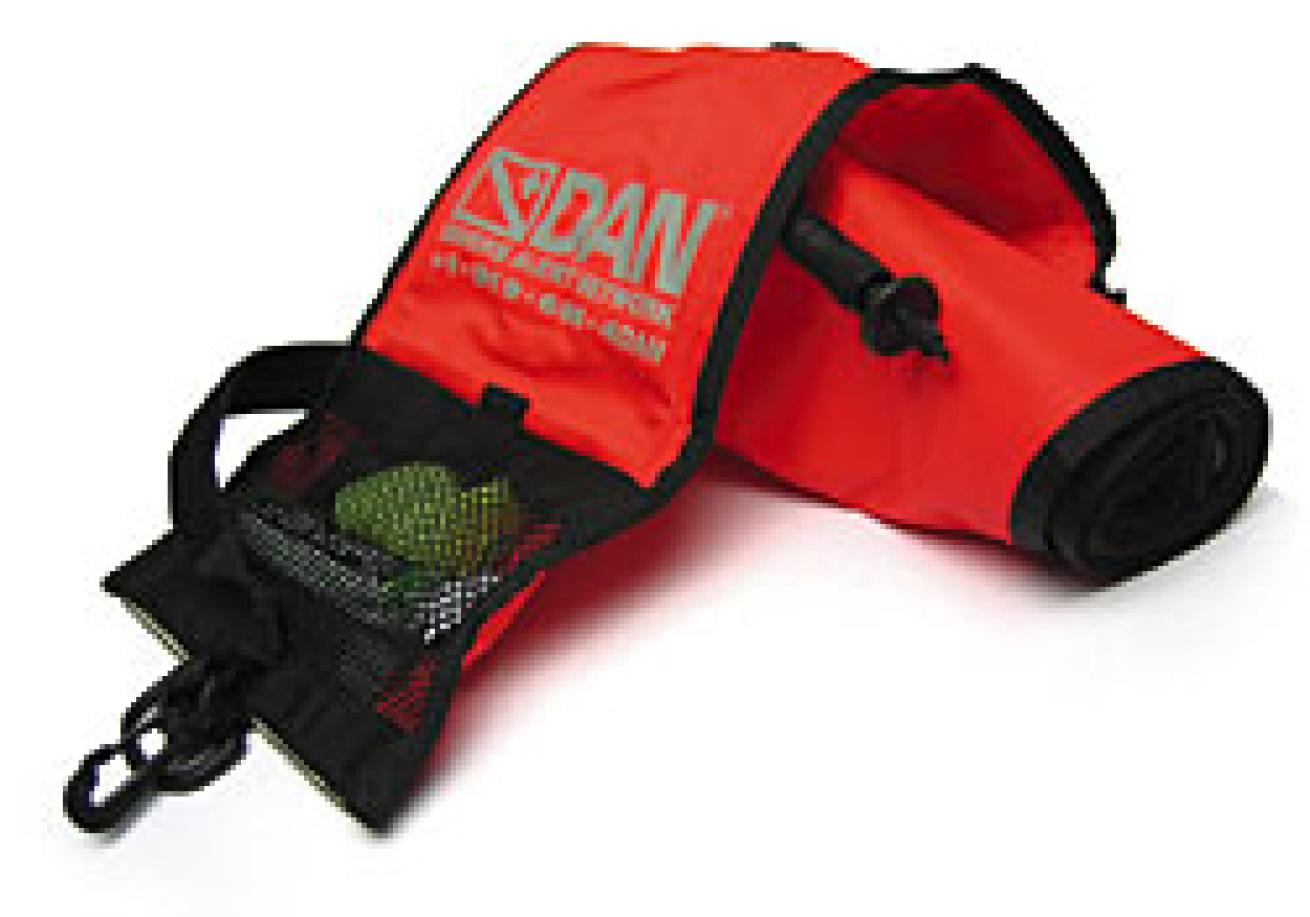
Joseph ByrdApril 2008: 10 Accessories Every Diver Needs: Surface Signal Kit
Surface Signal Kit
This kit has it all: a six-foot tube with reflective ink on one side, a Wind Storm whistle audible to about one-half mile, a signal mirror, and a 12-hour light stick that fits into a clear sleeve at the top of the tube. The tube can be filled from a regulator, orally or from your inflator hose, and it clips to a lower D-ring for vertical deployment. The whole kit rolls up and a neat mesh pocket holds all the accessories.
www. diversalertnetwork.org
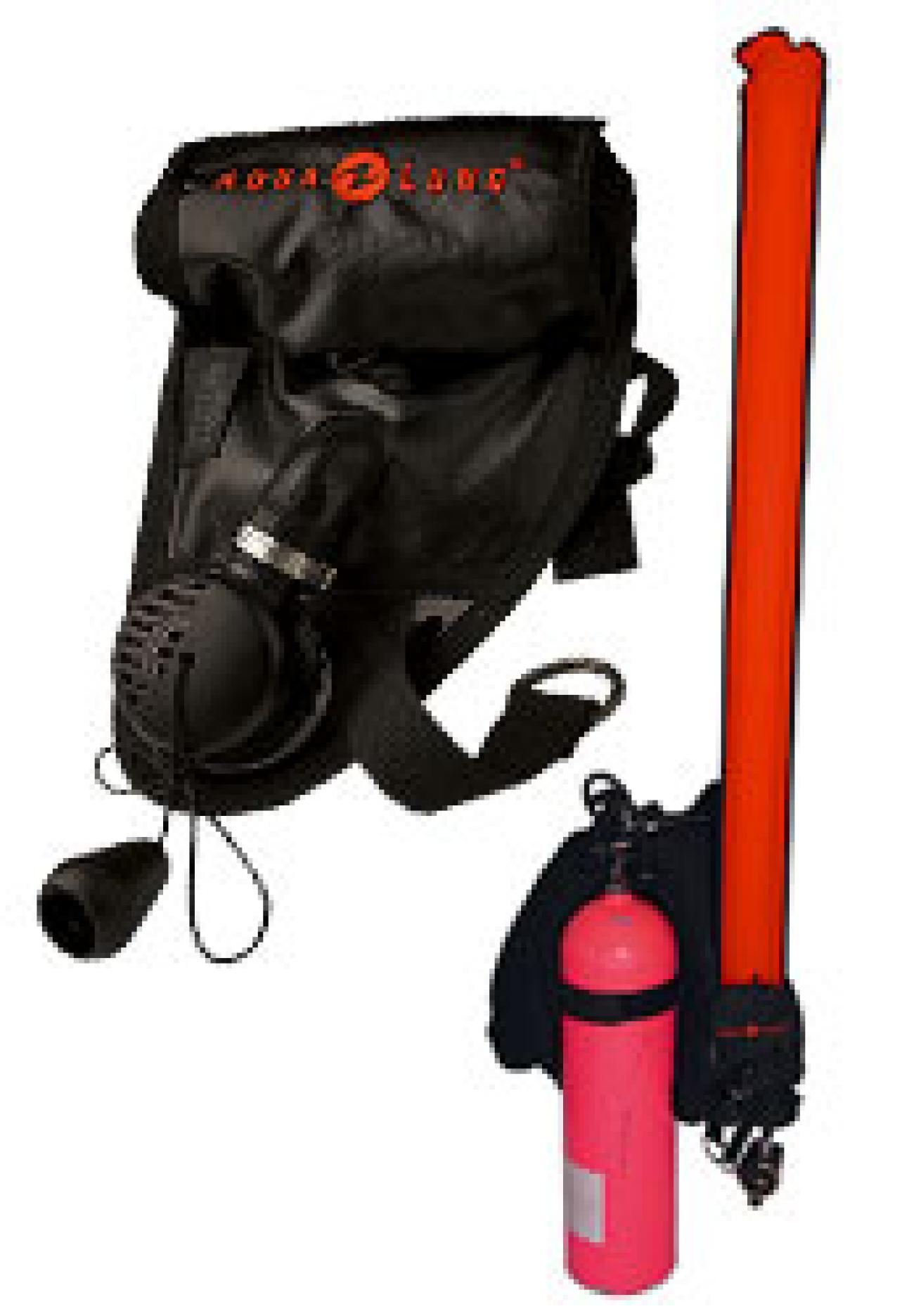
Joseph ByrdAqua Lung SOS
Aqua Lung: SOS
SOS
This Surface Observation Signal was born out of the real-life experiences of ocean photographer Stephen Frink. It's the original "Hands Free" signal tube and also one of the easiest to pack and deploy. The SOS attaches to the BC's rear pull-dump fitting and secures with an elastic strap. To deploy, just inflate your BC and pull the release strap. Air transfers from the BC into the tube until full. Now your hands are free to blow your whistle, use a signal mirror or just hold onto your cameras.
www.aqualung.com
7. Spring Straps
Spring straps are so darn convenient that we think every diver should have a set. They pull on over your heel easily, are self-adjusting, and will last for years. While more and more new fins are coming standard with spring straps, these after-market options allow you to upgrade your current fins.
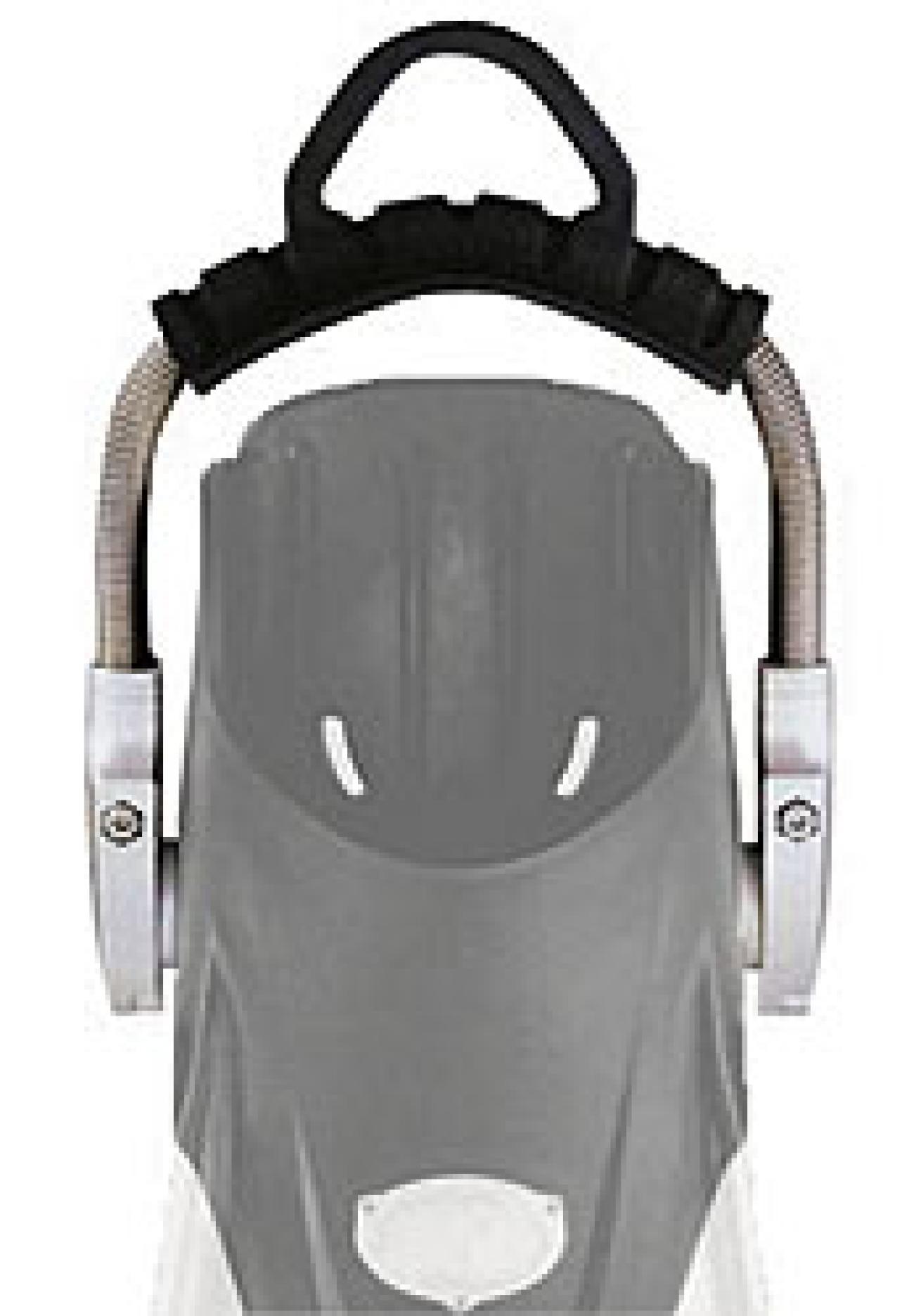
Joseph ByrdTA-80 Spring Straps
TA-80 Spring Straps
Tusa's new spring straps come with the hardware and even the tools to retrofit almost any post-style fin. The whole process takes about five minutes. A rubber heel pad and large finger loop make donning and doffing a breeze.
www.tusa.com
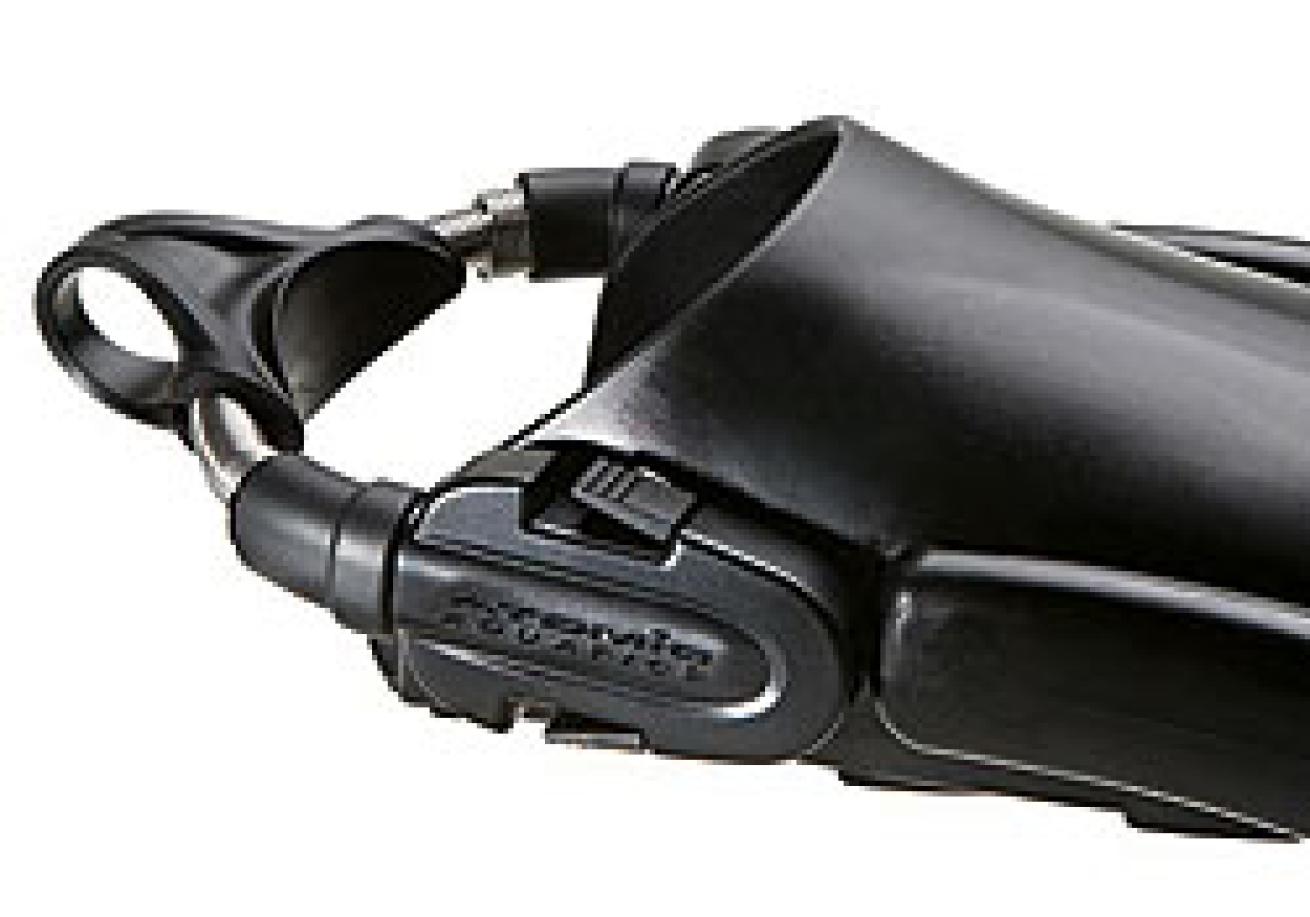
Joseph ByrdAtomic Aquatics
Atomic Aquatics Spring straps
Designed to fit Atomic fins exclusively, these spring straps use a variable pitch coil for easier stretch and greater strength. These spring straps also come with a unique quick-release buckle system permitting simple, one-handed removal or attachment.
www.atomicaquatics.com
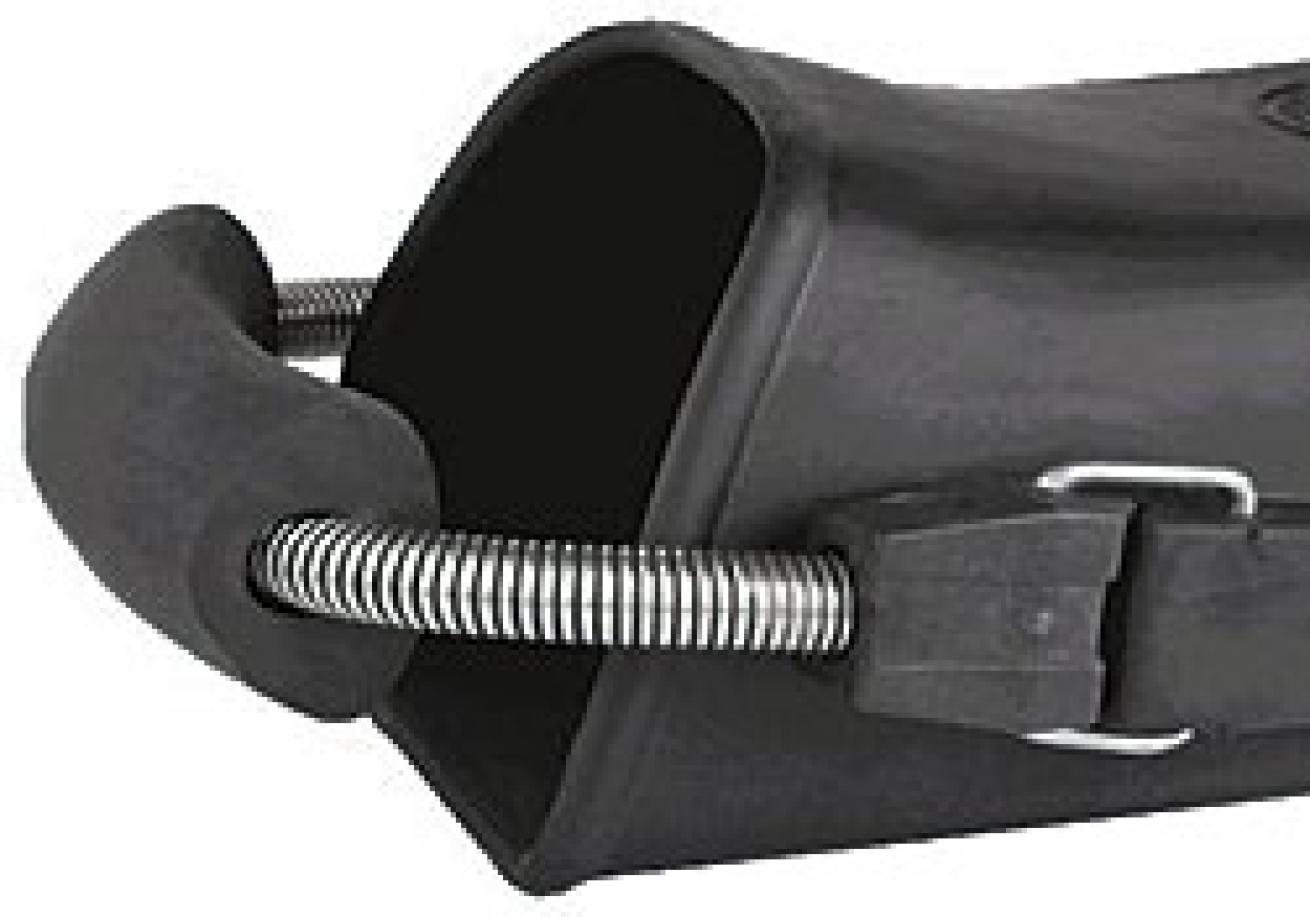
Joseph ByrdFS series spring straps
OMS: FS series spring straps
Die-hard Jet Fin and Rocket Fin users rejoice--this spring strap system is specifically designed to retrofit older-style fins that use metal buckles. The straps are available in four sizes (S, M, L, XL) and have a comfy rubber heel pad. They are also available with plastic buckles to fit post-style fins.
www.omsdive.com
8. A Good Parts & Tool Kit
Minor gear failures like a blown O-ring or leaky fitting won't keep you from diving if you have the right backup parts and tools to engage in some basic field repair.
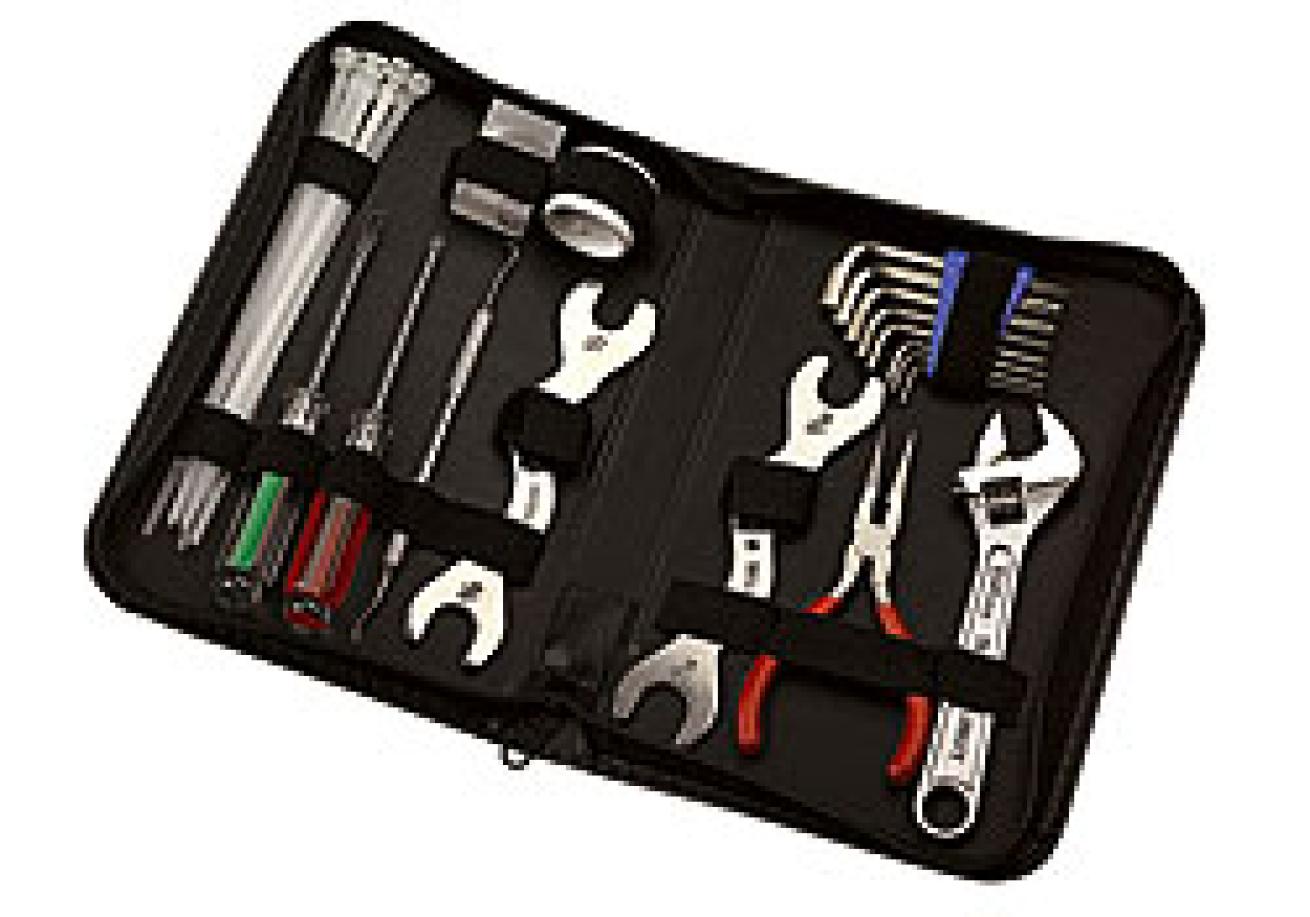
Joseph ByrdInnovative Scuba Concepts: Diver Tool and Repair Kit
Innovative Scuba Concepts: Diver Tool and Repair Kit
If you're the one that everybody turns to when something breaks, then you better have this tool kit. This deluxe 34-piece kit has everything you need, including open-ended wrenches that fit common hoses, an eight-piece hex wrench set to tighten plugs, plus zip ties, silicone and spare O-rings. It's organized in a nice zippered case.
Contact your local dive store.
9. Clips & Retainers
Clips and retainers are the must-have accessory for all your other accessories, helping to control and streamline your gear. Two of our favorites:
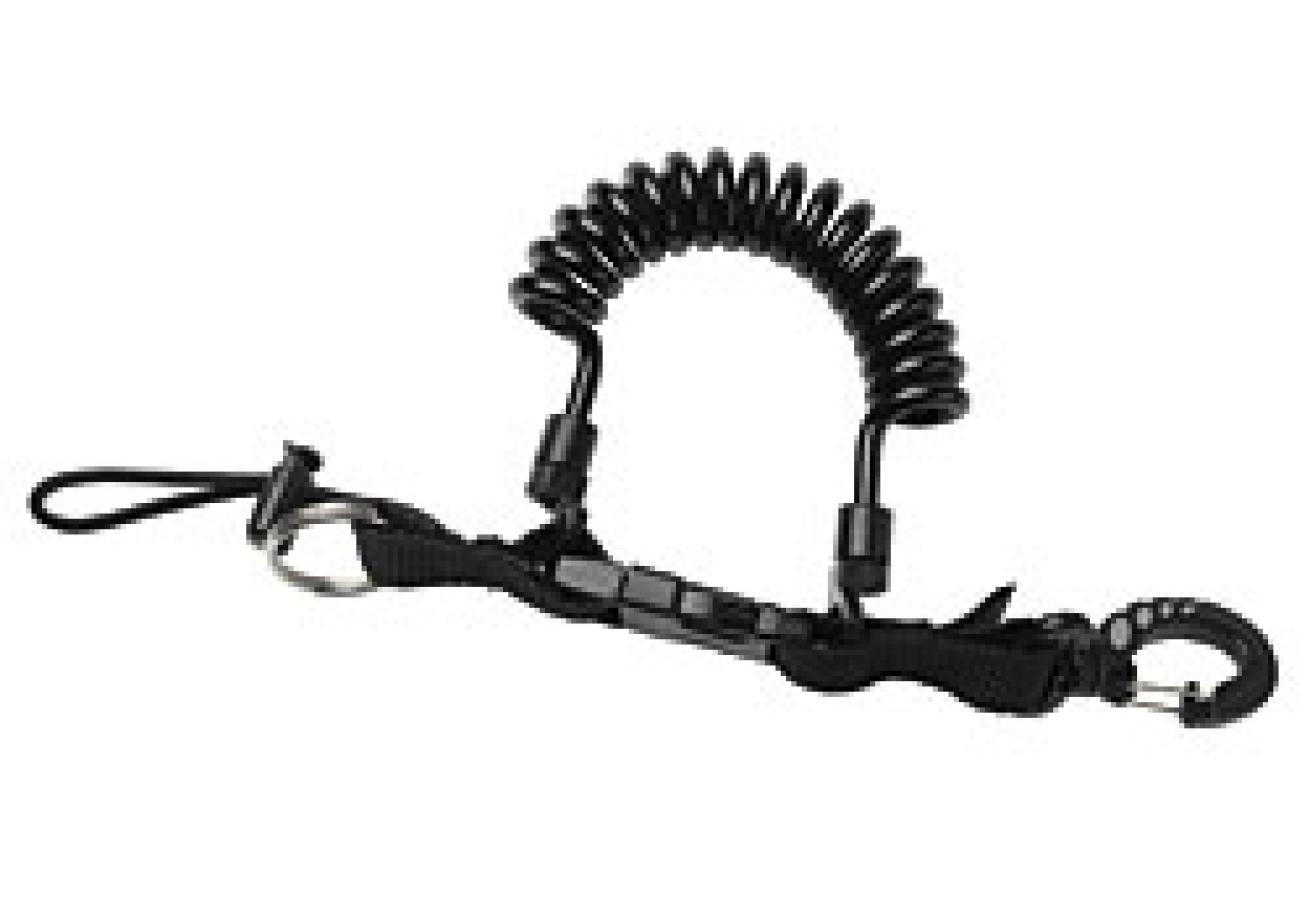
Joseph ByrdLanyard Spiral with Ring
Mares: Lanyard Spiral with Ring
This lanyard with spiral cord is a great way to keep a dive light close at hand. The light can be connected with either a split ring or a nylon cord at one end. The other end is fitted with a clip for easy connection to a D-ring. A quick-release buckle keeps the hang length to about six inches. For greater extension just pinch the clip and stretch out the coil for excellent range of motion. The best part is that you won't lose your light if dropped.
www.mares.com
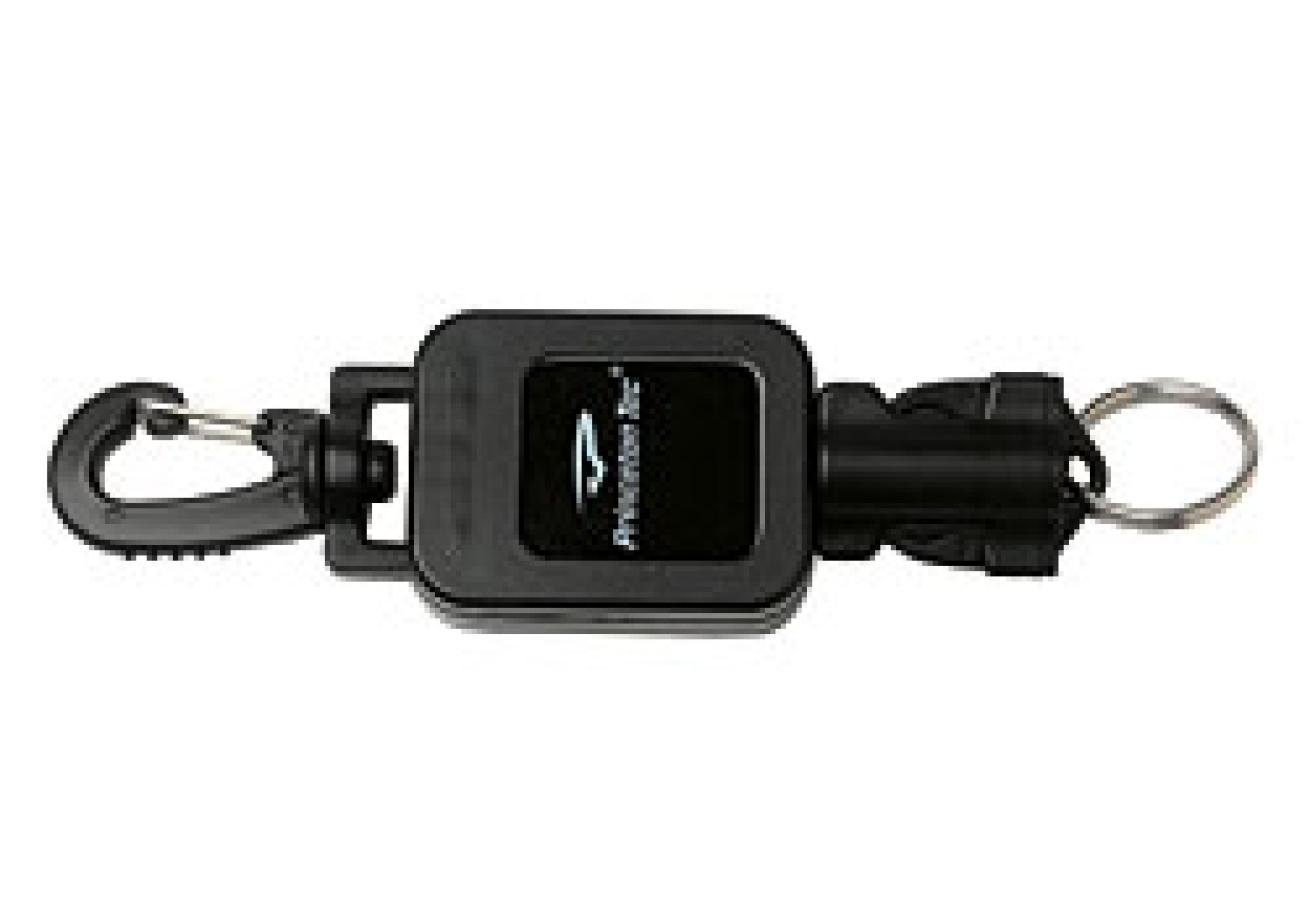
Joseph ByrdMini Retractor
Princeton Tec: Mini Retractor
The Mini Retractor is great for handling smaller gear like slates, backup lights and consoles. Things that usually get stuffed into pockets are easier to access when clipped off instead. The Mini Retractor extends 20 inches and has a quick-release clip for convenience.
www.princetontec.com
10. A Trusty Dive Knife
No piece of dive gear has improved more over the decades than the dive knife. The latest designs make use of better materials that resist corrosion and hold a sharp edge longer than ever before.
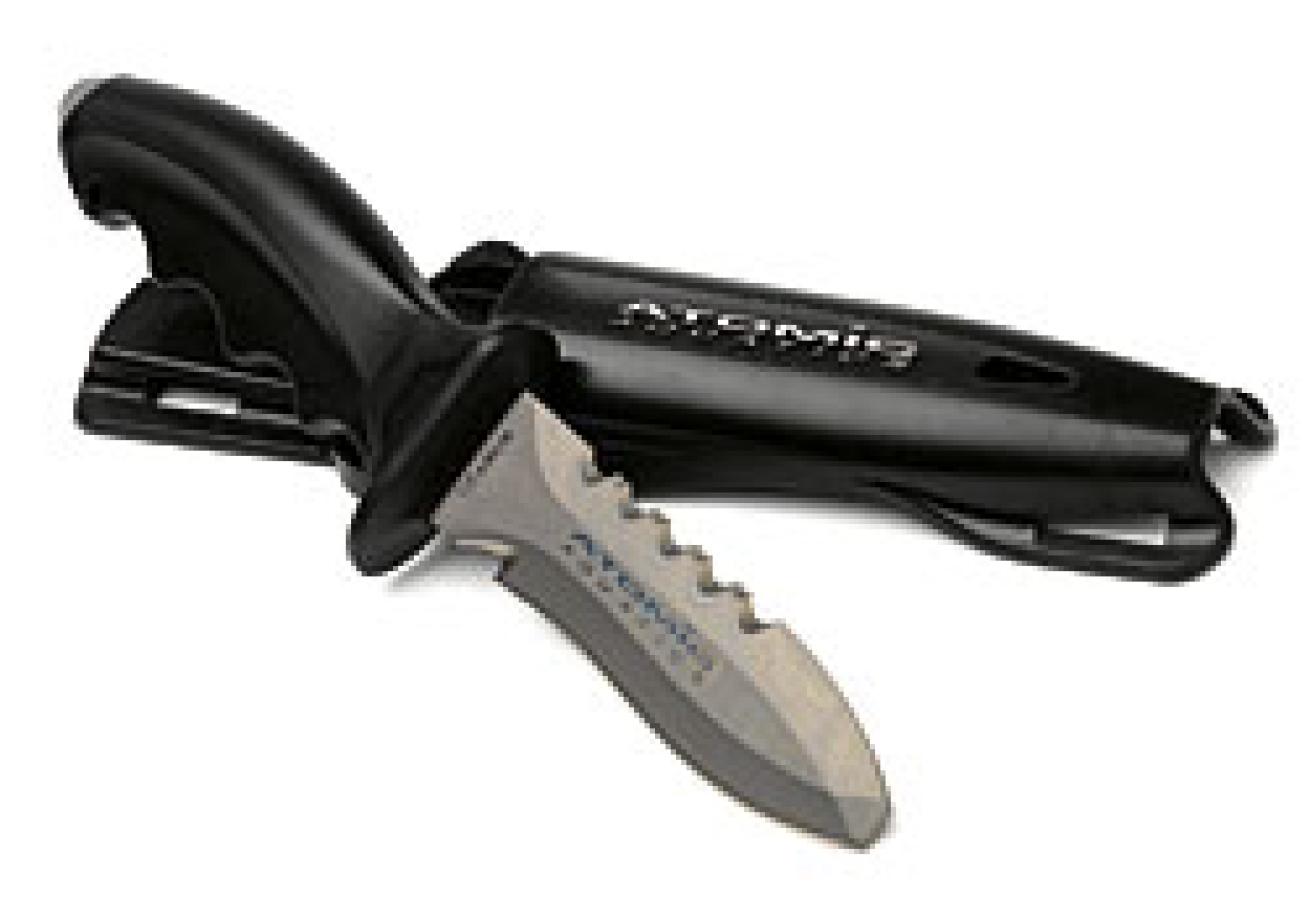
Joseph ByrdTi6 Titanium
Atomic Aquatics: Ti6 Titanium
The four-inch Titanium blade has a very sharp serrated edge on top for quick rope ripping and a smooth blade on the bottom with a line-cutting notch. The handle has molded finger grooves for a secure grip and a lanyard hole is provided for cold-water divers whose dexterity is minimal due to thick mitts. Bonus: The titanium end cap can be removed to disassemble the handle for cleaning, though corrosion is not an issue. The knife can be removed and replaced easily from the locking sheath with one hand. The Ti6 knife has a traditional look with high-tech improvements. Available with a blunt or pointed tip.
www.atomicaquatics.com
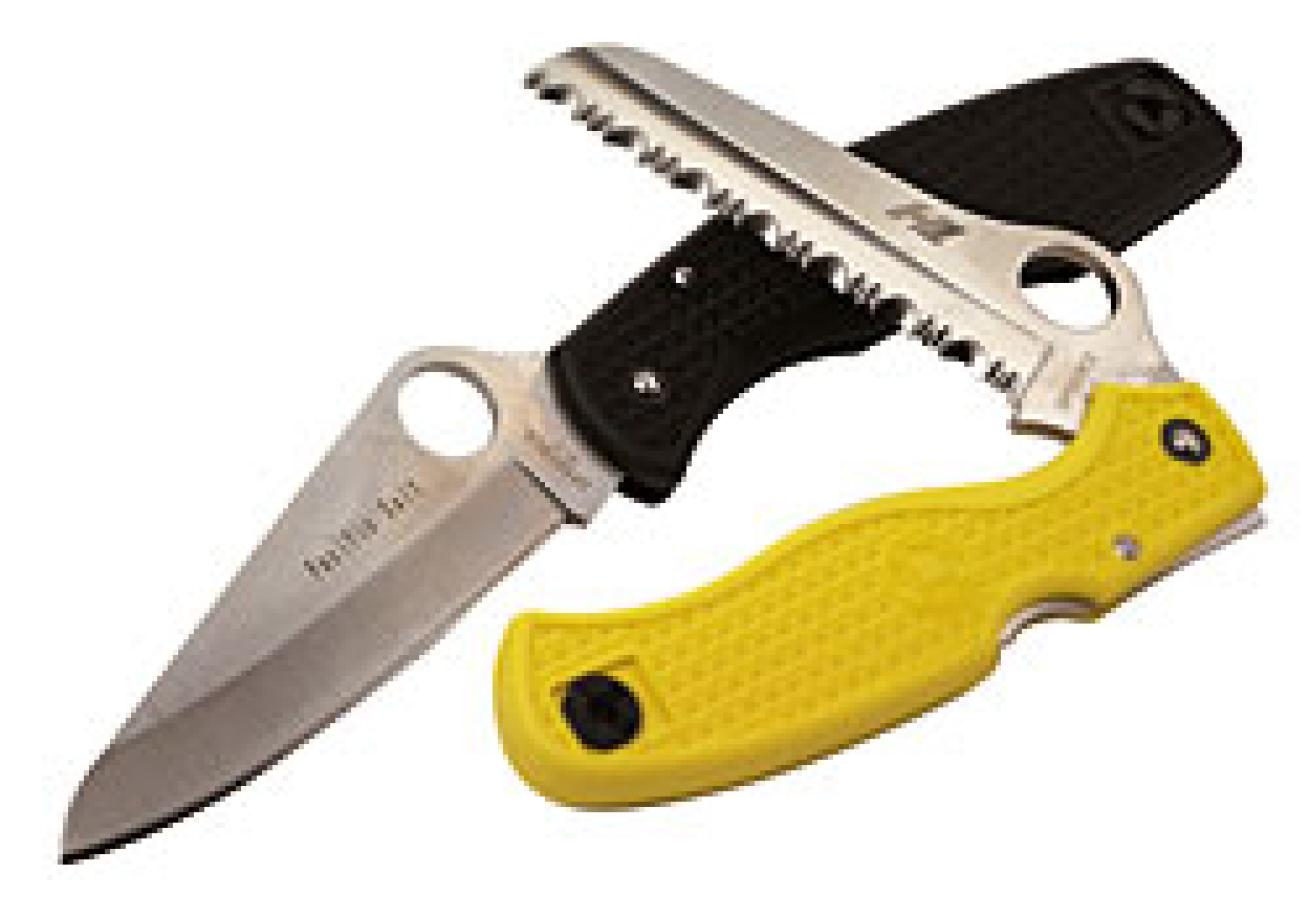
Joseph ByrdAtlantic Salt and Pacific Salt
Spyderco: Atlantic Salt (yellow) and Pacific Salt (black)
Also featuring H1 stainless steel, these folding knives fit nicely in small pockets, open easily with one hand and are available with smooth or serrated edges.
www.spyderco.com
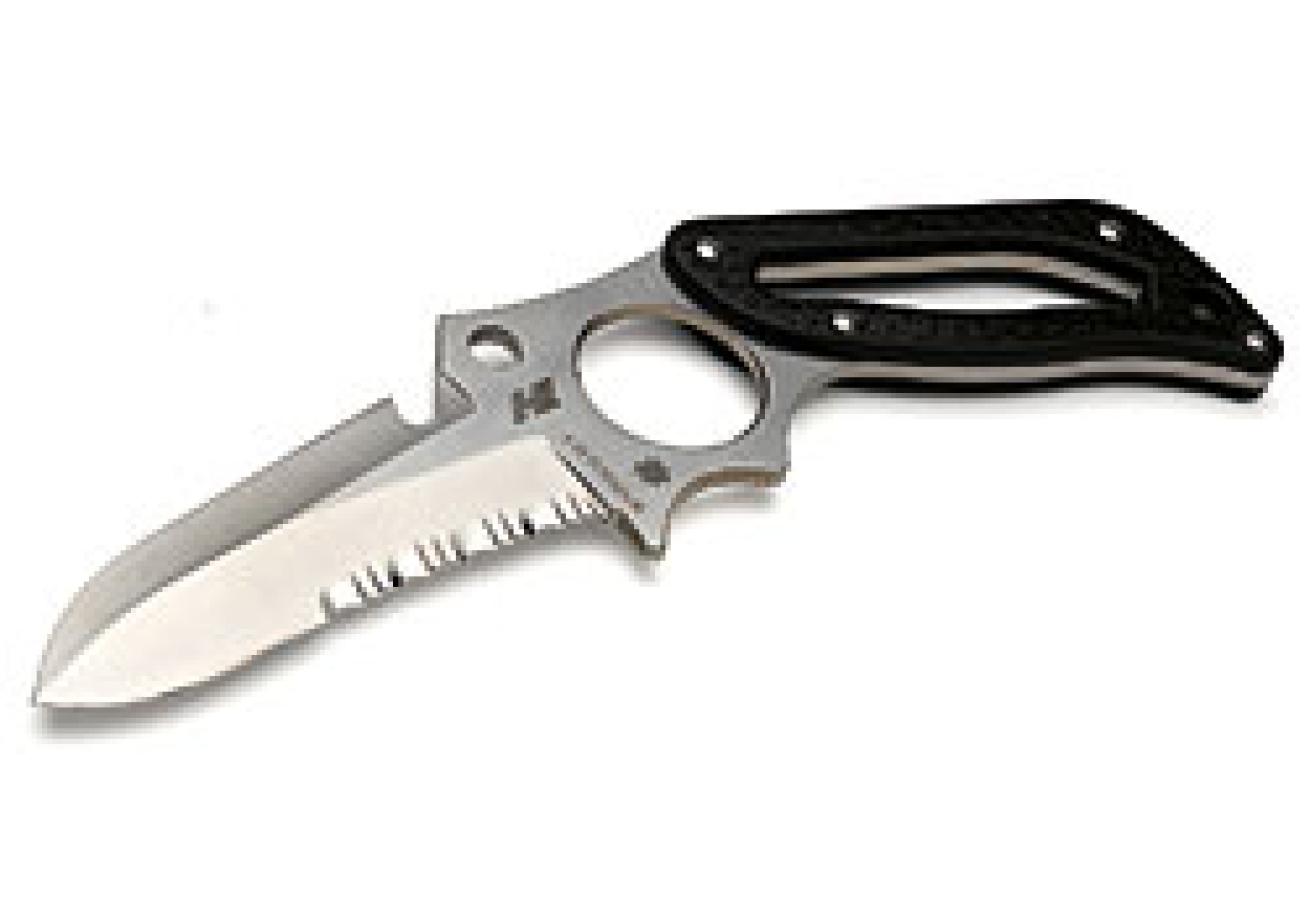
Joseph ByrdSpyderco: Caspian Salt
Spyderco: Caspian Salt
Caspian Salt
The Caspian Salt is a small knife with some big teeth and a seriously sharp edge. The blade is made of special H1 stainless steel that uses nitrogen instead of carbon in its matrix, thus producing a metal that's hard enough to hold a serious edge but still resists corrosion with the best of them. Bonus: A large finger hole makes it one of the most secure grips we've seen.
www.spyderco.com

